- Privacy Policy

Home » Research Paper Title – Writing Guide and Example

Research Paper Title – Writing Guide and Example
Table of Contents

Research Paper Title
The title of a research paper is the first thing readers see, serving as a window into the study’s purpose, scope, and content. A well-crafted title grabs attention, reflects the main focus of the research, and helps readers determine if the paper is relevant to their interests. Writing a strong research paper title is essential for effectively communicating the study’s significance and attracting the right audience.
Importance of a Research Paper Title
A well-chosen research paper title:
- Attracts Attention : A catchy, descriptive title piques readers’ interest and encourages them to read further.
- Reflects Content : The title should accurately represent the study’s focus, variables, and findings.
- Improves Discoverability : Using relevant keywords in the title helps increase the paper’s visibility in search engines and academic databases.
- Establishes Scope : The title provides a concise overview, guiding readers on what to expect from the paper.
Characteristics of an Effective Research Paper Title
An effective research paper title should be:
- Descriptive and Specific : Clearly convey the study’s focus and main findings without being too vague.
- Concise : Avoid unnecessary words; keep the title clear and to the point.
- Informative : Include relevant information about the topic, research method, or population studied.
- Attention-Grabbing : Choose engaging language to make the title stand out.
- Keyword-Rich : Use relevant terms to improve searchability and increase visibility.
Writing Guide for Research Paper Titles
Step 1: identify key elements of the study.
Consider the main components of your study, including:
- Research Topic : The general subject or field of study (e.g., mental health, climate change).
- Variables : Key factors or concepts studied (e.g., social media use, anxiety levels).
- Research Method : The approach or methodology used (e.g., survey, experiment).
- Population : The specific group studied (e.g., college students, healthcare professionals).
- Main Findings : Any significant results that can add interest or specificity to the title.
Example : If the study examines the impact of social media on anxiety among college students using a survey, these elements will help shape a relevant title.
Step 2: Decide on the Title Type
Titles can be structured in various ways, each serving different purposes. Common title types include:
- Example : “Social Media Use and Anxiety Among College Students”
- Example : “Increased Social Media Use Correlates with Higher Anxiety Levels in College Students”
- Example : “Does Social Media Use Contribute to Anxiety in College Students?”
- Example : “Social Media and Mental Health: Exploring the Link Between Usage and Anxiety Among College Students”
Step 3: Incorporate Keywords
Choose keywords that represent the study’s topic, method, and variables. Keywords improve discoverability in academic databases and search engines, helping readers find your paper.
Example Keywords : Social media, anxiety, college students, mental health, survey.
Step 4: Keep the Title Concise and Avoid Jargon
A research paper title should generally be no longer than 12-15 words, depending on the journal’s guidelines. Avoid technical jargon or overly complex language that could confuse readers. Instead, aim for clarity and precision.
Example : Instead of “An Examination of the Correlation Between Digital Social Platforms and Increased Psychological Distress in Undergraduate Populations,” use “Social Media Use and Anxiety Among College Students.”
Step 5: Revise for Clarity and Impact
After drafting the title, review it to ensure it is clear, engaging, and accurately represents the study. Test the title’s impact by considering if it would capture your attention as a reader.
Example : If the initial draft title is “Social Media Use and Anxiety in College Students,” a revised version could be “Social Media Use Linked to Higher Anxiety Levels Among College Students,” which is more engaging.
Examples of Effective Research Paper Titles
- Example : “The Relationship Between Sleep Quality and Academic Performance Among High School Students”
- Why It Works : This title is clear, specific, and informs readers of the main variables and population studied.
- Example : “Mindfulness Training Reduces Stress and Improves Focus in Healthcare Professionals”
- Why It Works : It states the main finding, which makes it immediately interesting and relevant to readers.
- Example : “Can Green Spaces Improve Urban Residents’ Mental Health?”
- Why It Works : The question format engages readers and suggests an exploration of a relevant issue.
- Example : “Physical Activity and Mental Health: Examining the Impact of Exercise on Depression and Anxiety Symptoms”
- Why It Works : The main title establishes the topic, while the subtitle adds detail, making it clear and informative.
Tips for Writing a Research Paper Title
- Use Active Language : Choose active and descriptive words to make the title more engaging. For example, instead of “An Investigation of Social Media Effects on Anxiety,” use “Social Media Use Increases Anxiety Among Adolescents.”
- Avoid Redundancy : Avoid words that don’t add meaning (e.g., “A Study on” or “An Investigation into”). Go directly to the main points.
- Align with Journal Requirements : Check the target journal’s guidelines for title length, format, and style. Some journals may require specific wording or have character limits.
- Avoid Ambiguity : Make sure the title conveys a clear idea of what the paper covers, avoiding vague terms like “Effects on Health” without specifying which health outcomes are studied.
- Reflect the Study’s Tone : Ensure the title reflects the study’s approach (e.g., “Exploring,” “Investigating,” or “Assessing” for qualitative studies; “Comparing,” “Measuring,” or “Examining” for quantitative studies).
Common Pitfalls to Avoid
- Overly Broad Titles : A broad title may be uninformative and fail to attract specific readers. Aim for precision in the variables, population, and context.
- Technical Jargon : Avoid specialized terms that might be unfamiliar to a general audience unless they are essential to the title.
- Lengthy Titles : Long titles may appear cumbersome and discourage readership. Aim to keep titles concise and impactful.
- Vague Wording : Avoid titles that are too generic or vague, as they fail to communicate the study’s specific focus.
Example Titles and Revisions
- Revised Title : “Challenges in Online Learning: Factors Affecting Student Engagement in Remote Classrooms”
- Why It Works : The revised title specifies the context (online learning) and outcome (student engagement), making it clearer and more informative.
- Revised Title : “Air Pollution Exposure and Respiratory Health in Urban Children: A Longitudinal Study”
- Why It Works : The revised title specifies the environmental factor (air pollution), population (urban children), and method (longitudinal study), which provides more context.
- Revised Title : “Media Coverage and Public Opinion on Climate Change: A Comparative Study of the U.S. and Europe”
- Why It Works : The revised title provides specific information about the topic (climate change), variables (media coverage and public opinion), and context (U.S. and Europe).
Crafting an effective research paper title is essential for attracting the right audience and ensuring your paper’s impact. A good title is specific, concise, descriptive, and rich with relevant keywords to improve discoverability. By following this guide and refining your title to reflect the study’s focus, methods, and findings, you can create an engaging and informative title that captures readers’ interest and communicates the essence of your research.
- Creswell, J. W., & Creswell, J. D. (2018). Research Design: Qualitative, Quantitative, and Mixed Methods Approaches (5th ed.). SAGE Publications.
- Silvia, P. J. (2007). How to Write a Lot: A Practical Guide to Productive Academic Writing . American Psychological Association.
- Swales, J. M., & Feak, C. B. (2012). Academic Writing for Graduate Students: Essential Tasks and Skills (3rd ed.). University of Michigan Press.
- Day, R. A., & Gastel, B. (2011). How to Write and Publish a Scientific Paper (7th ed.). Greenwood.
- Glasman-Deal, H. (2010). Science Research Writing for Non-Native Speakers of English . Imperial College Press.
About the author
Muhammad Hassan
Researcher, Academic Writer, Web developer
You may also like

Research Paper Title Page – Example and Making...

Research Design – Types, Methods and Examples

Research Contribution – Thesis Guide

APA Table of Contents – Format and Example

How to Cite Research Paper – All Formats and...

Implications in Research – Types, Examples and...

Research Title
Ai generator.
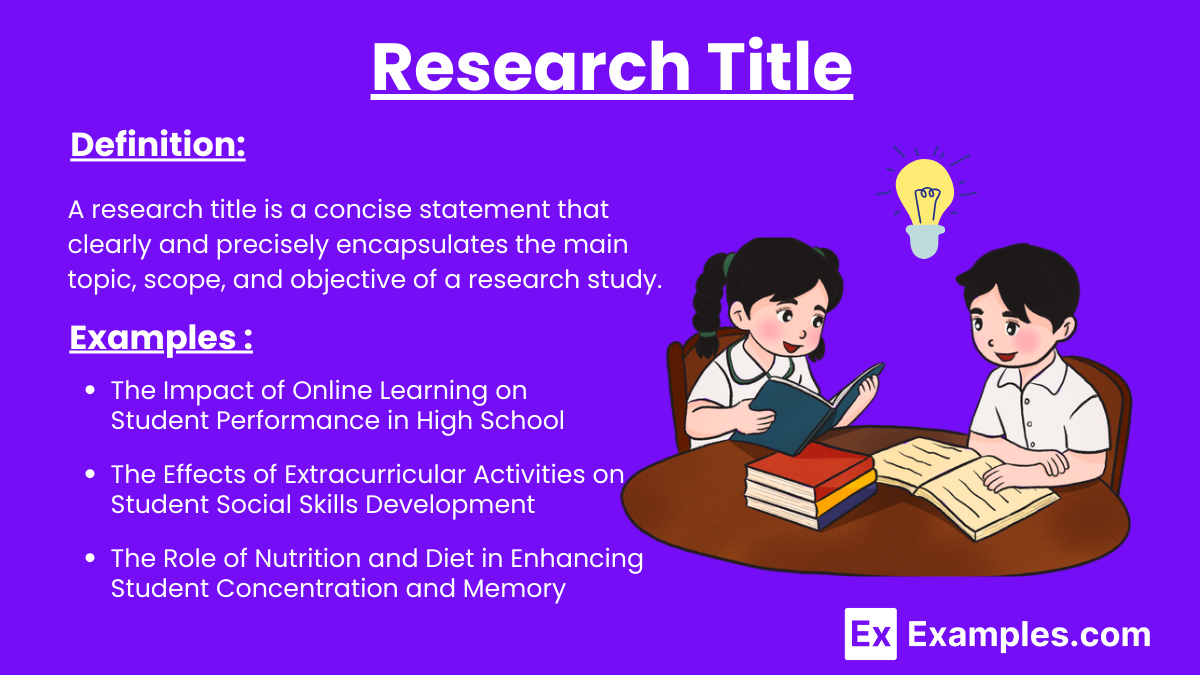
A research title is a succinct, informative phrase that encapsulates a study’s essence. It gives readers a clear indication of the research’s focus, scope, and significance. An effective research title is concise, specific, and engaging, incorporating key terms related to the primary subject matter. Crafting a well-thought-out research title is crucial as it influences first impressions and impacts the study’s visibility and accessibility. Additionally, a strong research title enhances the title page and ensures the research paper cover letter accurately reflects the study’s content.
What is Research Title?
A research title is a concise statement that clearly and precisely encapsulates the main topic, scope, and objective of a research study. It serves as the first point of contact for readers and should effectively communicate the essence of the research in a way that is both engaging and informative. A well-crafted research title is specific, descriptive, and reflective of the study’s core focus, helping to attract interest and provide a clear understanding of the research subject at a glance.
Research Title Format
A well-crafted research title follows a specific format to ensure clarity and precision. Here’s a structured approach:
[Main Topic]: [Specific Aspect or Focus]
Example: “The Impact of Social Media on Teen Mental Health: A Comprehensive Analysis of Behavioral Changes”
Examples of Research Titles
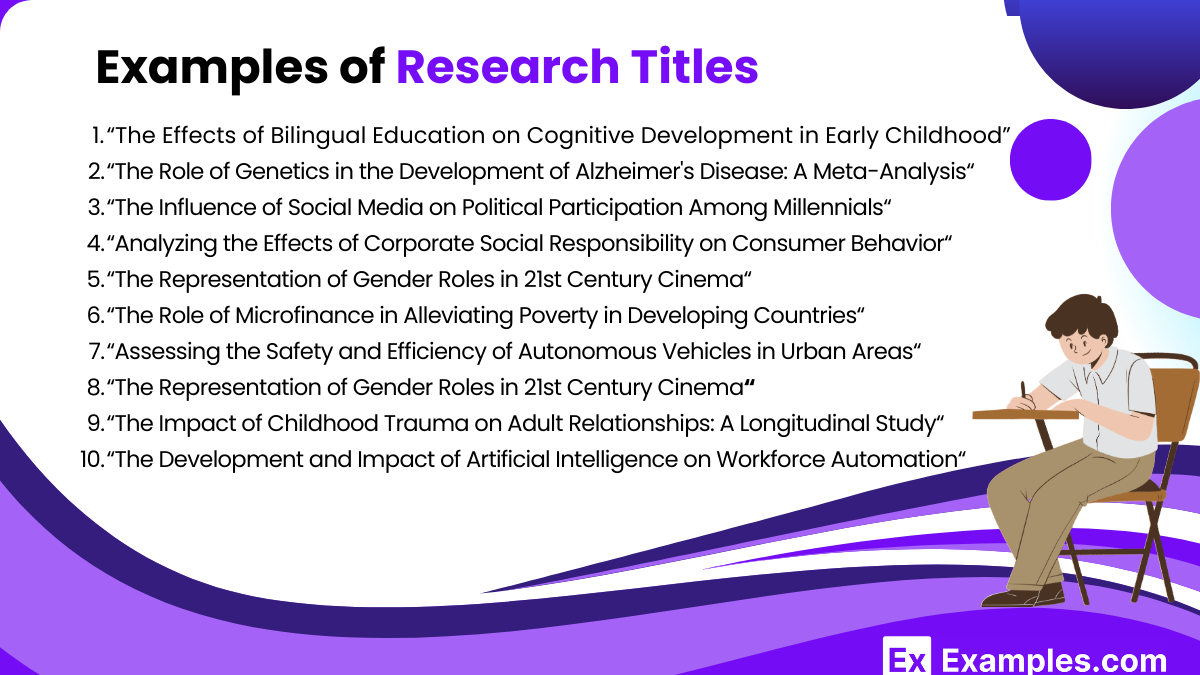
Here are some examples of well-crafted research titles across various fields:
- “The Effects of Bilingual Education on Cognitive Development in Early Childhood”
- “Assessing the Impact of Technology Integration on Student Engagement in High School Classrooms”
- “The Role of Genetics in the Development of Alzheimer’s Disease: A Meta-Analysis”
- “Evaluating the Efficacy of Telemedicine in Managing Chronic Diseases During the COVID-19 Pandemic”
- “The Impact of Urbanization on Local Wildlife Populations: A Case Study of Central Park”
- “Assessing the Effectiveness of Renewable Energy Policies in Reducing Carbon Emissions”
- “The Influence of Social Media on Political Participation Among Millennials”
- “Exploring the Relationship Between Socioeconomic Status and Academic Achievement in Urban Schools”
- “Analyzing the Effects of Corporate Social Responsibility on Consumer Behavior”
- “The Role of Microfinance in Alleviating Poverty in Developing Countries”
- “The Development and Impact of Artificial Intelligence on Workforce Automation”
- “Assessing the Safety and Efficiency of Autonomous Vehicles in Urban Areas”
- “The Representation of Gender Roles in 21st Century Cinema”
- “Exploring the Influence of Renaissance Art on Modern Aesthetic Values”
- “The Impact of Childhood Trauma on Adult Relationships: A Longitudinal Study”
- “Exploring the Effectiveness of Cognitive Behavioral Therapy in Treating Anxiety Disorders”
- “The Effectiveness of Vaccination Campaigns in Reducing the Spread of Infectious Diseases: A Global Perspective”
- “Sustainable Farming Practices and Their Impact on Soil Health: A Comparative Study of Organic and Conventional Methods”
Research Titles for Students
- The Impact of Online Learning on Student Performance in High School
- Exploring the Relationship Between Sleep Patterns and Academic Achievement Among College Students
- The Effects of Extracurricular Activities on Student Social Skills Development
- The Influence of Peer Pressure on High School Students’ Academic Choices
- Assessing the Benefits of Early Childhood Education Programs on Later Academic Success
- The Role of Nutrition and Diet in Enhancing Student Concentration and Memory
- Examining the Effectiveness of Study Groups in Improving Academic Performance in University Settings
- The Impact of Part-Time Employment on High School Students’ Academic Achievement and Time Management
- Exploring the Relationship Between Physical Activity and Mental Health Among College Students
- The Effects of School Uniform Policies on Student Behavior and Academic Outcomes
Qualitative Research Titles
- Exploring Student Perceptions of Remote Learning During the COVID-19 Pandemic
- The Lived Experiences of First-Generation College Students: Challenges and Triumphs
- Understanding Teacher Attitudes Towards Inclusive Education in Mainstream Classrooms
- The Impact of Parental Involvement on Student Motivation and Academic Success
- Exploring the Cultural Adaptation Experiences of International Students in American Universities
- The Role of Peer Support in Coping with Academic Stress Among High School Students
- Investigating the Influence of School Climate on Teacher Job Satisfaction and Retention
- The Effects of Community-Based Learning on Student Engagement and Civic Responsibility
- Understanding the Barriers to STEM Education for Female Students in Rural Areas
- Exploring the Experiences of Students with Learning Disabilities in Higher Education
- The Impact of School Leadership Styles on Teacher Morale and Performance
- The Role of Mentorship Programs in Supporting Minority Students in STEM Fields
- Exploring the Emotional and Social Impacts of Bullying on Middle School Students
- The Influence of Extracurricular Activities on Identity Development in Adolescents
- Understanding the Perspectives of Parents on Bilingual Education Programs
Quantitative Research Titles
- The Impact of Class Size on Student Academic Achievement in Elementary Schools
- Analyzing the Correlation Between Homework Frequency and Student Performance in Mathematics
- The Effects of School Funding on Standardized Test Scores in Public Schools
- Assessing the Relationship Between Attendance Rates and Graduation Rates in High Schools
- Evaluating the Effectiveness of Flipped Classrooms on Student Learning Outcomes
- The Influence of Parental Education Levels on Children’s Academic Success
- The Impact of Early Childhood Education on Literacy Rates in Primary School Students
- Comparing Academic Performance Between Students in Single-Sex and Coeducational Schools
- The Role of Technology in Enhancing Student Engagement in STEM Subjects
- Analyzing the Impact of Nutrition Programs on Student Health and Academic Performance
- The Relationship Between Physical Activity and Academic Achievement in High School Students
- Evaluating the Success of Mentorship Programs on College Retention Rates
- The Effects of Sleep Patterns on Academic Performance Among University Students
- Assessing the Impact of Socioeconomic Status on Access to Higher Education
- The Influence of Teacher Qualifications on Student Achievement in Science
Importance of a Research Title
A research title is a critical component of any research study or academic paper. It serves multiple important functions that contribute to the overall success and impact of the research. Here are key reasons why a research title is important:
1. First Impression
The research title is often the first element a reader encounters. A well-crafted title can create a strong first impression, attracting the reader’s attention and encouraging them to explore the study further.
2. Clarity and Focus
A good research title clearly and succinctly communicates the main topic and scope of the study. It helps the reader quickly understand what the research is about and what specific aspect is being addressed.
3. Guidance
The title provides guidance to the reader about the content and direction of the research. It sets expectations and helps readers decide if the paper is relevant to their interests or research needs.
4. Searchability
In the digital age, research titles are crucial for searchability. A precise and descriptive title improves the chances of the paper being found in online searches, databases, and academic journals, increasing its visibility and accessibility.
5. Academic and Professional Recognition
A well-formulated research title contributes to the academic and professional recognition of the work. It reflects the researcher’s ability to clearly define and articulate their study, which can enhance credibility and reputation within the academic community.
Characteristics of a Good Research Title
A good research title is essential for effectively communicating the main focus and scope of your study. Here are the key characteristics that make a research title effective:
- Clear and Understandable : The title should be easily understood by a broad audience, avoiding jargon or overly complex language.
- Direct : It should convey the main topic and scope of the research without ambiguity.
2. Conciseness
- Brevity : A good title is concise and to the point, typically no longer than 10-15 words.
- Essential Information : It includes only the most relevant information, omitting unnecessary words.
3. Specificity
- Focused : The title should clearly reflect the specific aspect or focus of the research.
- Detailed : It provides enough detail to give a clear sense of what the study entails.
4. Descriptiveness
- Informative : It accurately describes the content and scope of the study.
- Comprehensive : The title should give readers a good understanding of the research without needing to read the entire paper.
5. Keywords
- Relevant Keywords : Including key terms that are central to the research topic helps with searchability and indexing.
- SEO-Friendly : Using keywords that align with what potential readers might search for increases the paper’s visibility.
6. Engagement
- Interest : The title should be engaging and interesting, encouraging readers to want to learn more about the study.
- Appeal : It should appeal to the target audience, whether they are academics, practitioners, or the general public.
How to Write a Research Title?
A well-crafted research title is crucial as it provides the first impression of your study. It should be concise, informative, and engaging to capture the reader’s attention while conveying the essence of your research. Here’s a step-by-step guide on how to write an effective research title.
1. Understand the Purpose of the Title
The title should:
- Summarize the main topic of the research.
- Indicate the scope and focus of the study.
- Reflect the methodology used (if applicable).
- Attract the target audience’s interest.
2. Identify the Key Components
To create a comprehensive title, identify the following components of your research:
- Main topic : The primary subject or focus.
- Variables : Key elements or factors studied.
- Population/sample : The group or sample studied.
- Methodology : The approach or techniques used in the research.
3. Be Clear and Specific
Avoid vague and ambiguous terms. Be precise in describing your research. For example, instead of “Study of Education Methods,” use “Effectiveness of Interactive Learning Techniques in High School Biology.”
4. Keep It Concise
A good title is typically between 10 to 15 words. It should be long enough to include essential information but short enough to be easily readable.
5. Use Descriptive Words
Use words that describe the content and aim of your research effectively. Descriptive words help in making the title informative and engaging. Examples include “effects,” “analysis,” “evaluation,” “comparison,” etc.
6. Avoid Jargon and Abbreviations
Ensure that your title is accessible to a broad audience by avoiding technical jargon and abbreviations that might not be widely understood.
7. Consider the Audience
Think about who will be reading your research. Tailor your title to meet the expectations and interests of your target audience, whether they are academic peers, professionals, or the general public.
8. Reflect the Type of Study
Indicate whether the research is a review, case study, experiment, or theoretical analysis. This helps set the context for the reader. For example, “A Case Study on Renewable Energy Adoption in Urban Areas.”
9. Include Keywords
Incorporate relevant keywords that reflect the main themes of your research. This not only helps in search engine optimization but also makes your research easily discoverable.
10. Revise and Refine
Review your title for clarity, conciseness, and accuracy. Ask for feedback from peers or mentors to ensure it effectively represents your research.
FAQ’s
How should a research title be structured.
A research title should be clear, concise, and informative, often including the main variables, methods, and context of the study.
What are the key elements of a good research title?
Key elements include relevance, clarity, specificity, and the inclusion of main keywords related to the research topic.
Can a research title be a question?
Yes, a research title can be a question if it effectively conveys the research’s focus and intrigues the reader.
How long should a research title be?
A research title should be brief but descriptive, typically between 10 to 15 words, avoiding unnecessary jargon or overly complex terms.
Should a research title include keywords?
Yes, including keywords helps in indexing and searching, making it easier for others to find your research.
Can a research title change during the research process?
Yes, it can be refined or adjusted as the research progresses to better reflect the study’s findings and scope.
Should the research title reflect the research methodology?
It can, especially if the methodology is central to the study’s uniqueness or understanding, but it’s not always necessary.
How specific should a research title be?
A research title should be specific enough to give a clear idea of the study’s focus but not so detailed that it becomes cumbersome.
What makes a research title catchy?
A catchy research title is engaging, piques curiosity, and uses intriguing language while still being clear and informative.
Can humor be used in a research title?
Humor can be used if appropriate for the subject matter and audience, but it should not compromise clarity or professionalism.
Text prompt
- Instructive
- Professional
10 Examples of Public speaking
20 Examples of Gas lighting
- Write my thesis
- Thesis writers
- Buy thesis papers
- Bachelor thesis
- Master's thesis
- Thesis editing services
- Thesis proofreading services
- Buy a thesis online
- Write my dissertation
- Dissertation proposal help
- Pay for dissertation
- Custom dissertation
- Dissertation help online
- Buy dissertation online
- Cheap dissertation
- Dissertation editing services
- Write my research paper
- Buy research paper online
- Pay for research paper
- Research paper help
- Order research paper
- Custom research paper
- Cheap research paper
- Research papers for sale
- Thesis subjects
- How It Works
80+ Great Research Titles Examples in Various Academic Fields
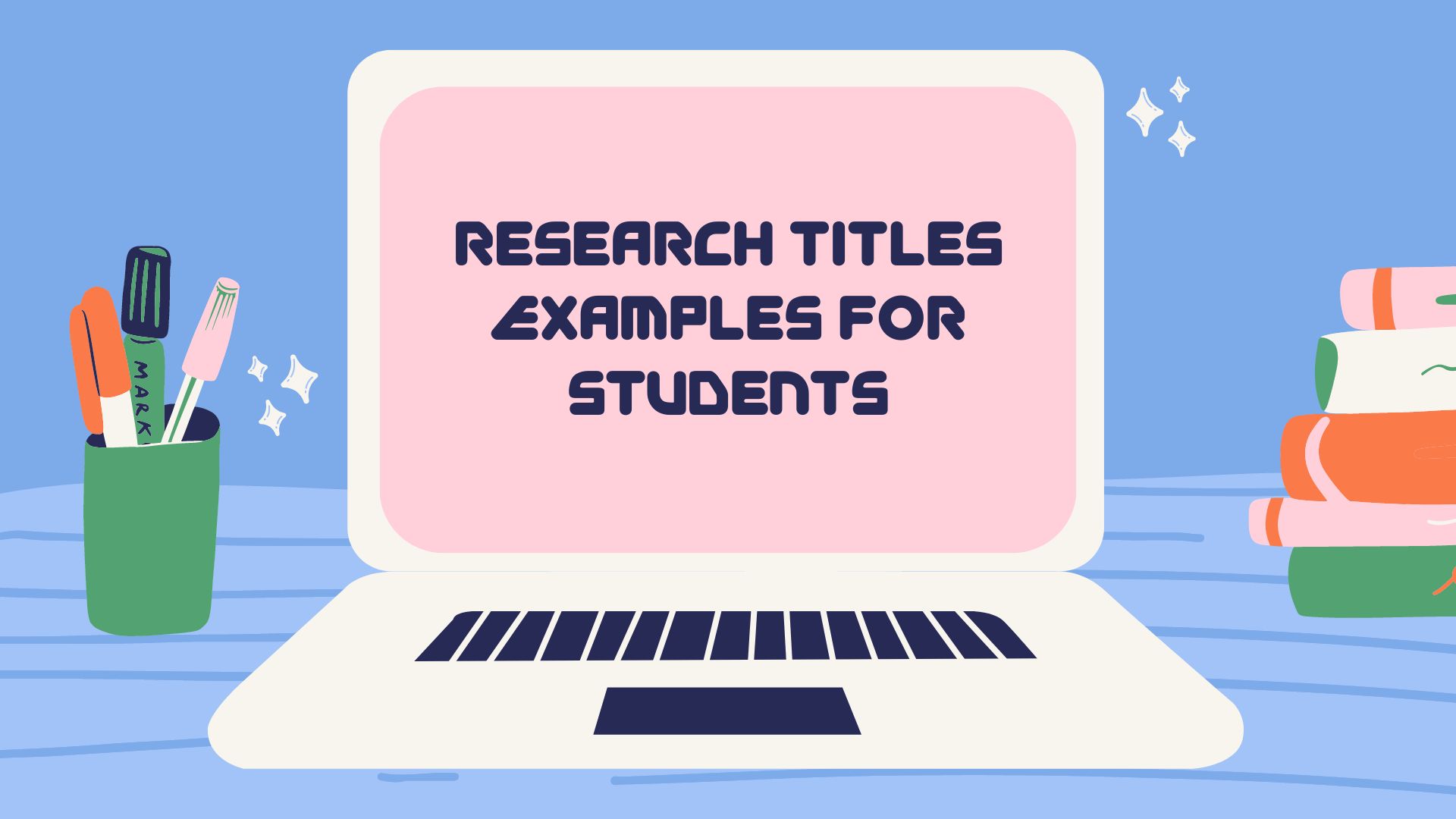
Coming up with a research title for an academic paper is one of the most challenging parts of the writing process. Even though there is an unlimited quantity of research titles to write about, knowing which one is best for you can be hard. We have done the research for you and compiled eighty examples of research titles to write on. Additionally, we have divided the research titles examples into sections to make them easier to choose.
Research Study Examples of Current Events
Examples of research topics on ethics, title of research study examples on health, research paper title examples on social concerns, examples of research title on art and culture, example of research interest in religion, samples of research study topics on technology, research examples of environmental studies, good research title examples on history, specific topic examples regarding education, research title examples for students on family, food, and nutrition, research problems examples computer science, samples of research title about business marketing and communications, sample of research study topics in women’s studies, research problem example on politics, what are some examples of research paper topics on law, final words about research titles.
When it comes to choosing a good sample research title, research is one of the best tips you can get. By reading widely, including your school notes and scholarly articles, you will have a problem/line of interest examples in research. Then, you can derive any question from areas that appear to have a knowledge gap and proceed with researching the answer. As promised, below are eighty research title examples categorized into different areas, including social media research topics .
- Discuss the peculiar policies of a named country – for example, discuss the impacts of the one-child policy of China.
- Research on the influence of a named political leader, say a president, on the country they governed and other countries around. For instance, you can talk about how Trump’s presidency has changed international relations.
- Conduct an analysis of a particular aspect of two named countries – for example, the history of the relationship between the U.S. and North Korea.
- Compare the immigration laws in two or more named countries – for example, discuss how the immigration laws in the U.S. compares with other countries.
- Discuss how the Black Lives Matter movement has affected the view and discussions about racism in the United States.
- Enumerate the different ways the government of the United States can reduce deaths arising from the unregulated use of guns.
- Analyze the place of ethics in medicine or of medical practitioners. For instance, you can discuss the prevalence of physician-assisted suicides in a named country. You may also talk about the ethicality of such a practice and whether it should be legal.
- Explain how recent research breakthroughs have affected that particular field – for instance, how stem cell research has impacted the medical field.
- Explain if and why people should be able to donate organs in exchange for money.
- Discuss ethical behaviors in the workplace and (or) the educational sector. For example, talk about whether or not affirmative action is still important or necessary in education or the workplace.
- Weigh the benefits and risks of vaccinating children and decide which one outweighs the other. Here, you might want to consider the different types of vaccinations and the nature and frequency of associated complications.
- Investigate at least one of the health issues that currently pose a threat to humanity and which are under investigation. These issues can include Alzheimer’s, cancer, depression, autism, and HIV/AIDS. Research how these issues affect individuals and society and recommend solutions to alleviate cost and suffering.
- Study some individuals suffering from and under treatment for depression. Then, investigate the common predictors of the disease and how this information can help prevent the issue.
Tip : To make this example of a research title more comprehensive, you can focus on a certain age range – say, teenagers.
- Discuss whether or not free healthcare and medication should be available to people and the likely implications.
- Identify and elucidate different methods or programs that have been most effective in preventing or reducing teen pregnancy.
- Analyze different reasons and circumstances for genetic manipulation and the different perspectives of people on this matter. Then, discuss whether or not parents should be allowed to engineer designer babies.
- Identify the types of immigration benefits, including financial, medical, and education, your country provides for refugees and immigrants. Then, discuss how these benefits have helped them in settling down and whether more or less should be provided.
- Discuss the acceptance rate of the gay community in your country or a specific community. For example, consider whether or not gay marriage is permitted if they can adopt children, and if they are welcome in religious gatherings.
- Explore and discuss if terrorism truly creates a fear culture that can become a society’s unintended terrorist.
- Consider and discuss the different techniques one can use to identify pedophiles on social media.
Tip : Social issues research topics are interesting, but ensure you write formally and professionally.
- Investigate the importance or lack of importance of art in primary or secondary education. You can also recommend whether or not it should be included in the curriculum and why.
Tip : You can write on this possible research title based on your experiences, whether positive or negative.
- Discuss the role of illustration in children’s books and how it facilitates easy understanding in children. You may focus on one particular book or select a few examples and compare and contrast.
- Should the use of art in books for adults be considered, and what are the likely benefits?
- Compare and contrast the differences in art from two named cultural Renaissance – for instance, the Northern Renaissance and the Italian Renaissance.
- Investigate how sexism is portrayed in different types of media, including video games, music, and film. You can also talk about whether or not the amount of sexism portrayed has reduced or increased over the years.
- Explore different perspectives and views on dreams; are they meaningful or simply a game of the sleeping mind? You can also discuss the functions and causes of dreams, like sleeping with anxiety, eating before bed, and prophecies.
- Investigate the main reasons why religious cults are powerful and appealing to the masses, referring to individual cases.
- Investigate the impact of religion on the crime rate in a particular region.
Tip : Narrow down this research title by choosing to focus on a particular age group, say children or teenagers, or family. Alternatively, you can focus on a particular crime in the research to make the paper more extensive.
- Explore reasons why Martin Luther decided to split with the Catholic church.
- Discuss the circumstances in Siddhartha’s life that led to him becoming the Buddha.
Tip : It is important to remove sentiments from your research and base your points instead on clear evidence from a sound study. This ensures your title of research does not lead to unsubstantiated value judgments, which reduces the quality of the paper.
- Discuss how the steel sword, gunpowder, biological warfare, longbow, or atomic bomb has changed the nature of warfare.
Tip : For this example of the research problem, choose only one of these technological developments or compare two or more to have a rich research paper.
- Explore the changes computers, tablets, and smartphones have brought to human behaviors and culture, using published information and personal experience.
Tip : Approach each research study example in a research paper context or buy research paper online , giving a formal but objective view of the subject.
- Are railroads and trains primary forces in the industrialization, exploitation, and settlement of your homeland or continent?
- Discuss how the use of fossil fuels has changed or shaped the world.
Tip : Narrow down this title of the research study to focus on a local or particular area or one effect of fossil fuels, like oil spill pollution.
- Discuss what progress countries have made with artificial intelligence. You can focus on one named country or compare the progress of one country with another.
- Investigate the factual status of global warming – that is, is it a reality or a hoax? If it is a reality, explore the primary causes and how humanity can make a difference.
- Conduct in-depth research on endangered wildlife species in your community and discuss why they have become endangered. You can also enumerate what steps the community can take to prevent these species from going extinct and increase their chances of survival.
- Investigate the environmental soundness of the power sources in your country or community. Then, recommend alternative energy sources that might be best suited for the area and why.
- Consider an area close to wildlife reserves and national parks, and see whether oil and mineral exploration has occurred there. Discuss whether this action should be allowed or not, with fact-backed reasons.
- Investigate how the use and abolishment of DDT have affected the population of birds in your country.
Tip : Each example research title requires that you consult authoritative scientific reports to improve the quality of your paper. Furthermore, specificity and preciseness are required in each example of research title and problem, which only an authority source can provide.
- Discuss the importance of a major historical event and why it was so important in the day. These events can include the assassination of John F. Kennedy or some revolutionary document like the Magna Carta.
- Consider voyagers such as the Vikings, Chinese, as well as native populations and investigate whether Columbus discovered America first.
- Choose a named historical group, family, or individual through their biographies, examining them for reader responses.
- Research people of different cultural orientations and their responses to the acts of others who live around them.
- Investigate natural disasters in a named country and how the government has responded to them. For example, explore how the response of the New Orleans government to natural disasters has changed since Hurricane Katrina.
Tip : Focus this research title sample on one particular country or natural disaster or compare the responses of two countries with each other.
- Explore the educational policy, “no child left behind,” investigating its benefits and drawbacks.
- Investigate the concept of plagiarism in the twenty-first century, its consequences, and its prevalence in modern universities. Take a step further to investigate how and why many students don’t understand the gravity of their errors.
- Do in-depth research on bullying in schools, explaining the seriousness of the problem in your area in particular. Also, recommend actions schools, teachers, and parents can take to improve the situation if anything.
- Explore the place of religion in public schools; if it has a place, explain why, and if it does not, explain why not.
- Does a student’s financial background have any effect on his or her academic performance? In this sample research title, you can compare students from different financial backgrounds, from wealthy to average, and their scores on standardized tests.
- Is spanking one’s child considered child abuse; if so, why? In this research problem example for students, consider whether or not parents should be able to spank their children.
- Investigate the relationship between family health and nutrition, focusing on particular nutrition. This example of the title of the research study, for instance, can focus on the relationship between breastfeeding and baby health.
- Elucidate on, if any, the benefits of having a home-cooked meal and sitting down as a family to eat together.
- Explore the effect of fast-food restaurants on family health and nutrition, and whether or not they should be regulated.
- Research local food producers and farms in your community, pinpointing how much of your diet is acquired from them.
Tip : These are great research titles from which you can coin research topics for STEM students .
- Compare and contrast the two major operating systems: Mac and Windows, and discuss which one is better.
Tip : This title of the research study example can lead to strong uninformed opinions on the matter. However, it is important to investigate and discuss facts about the two operating systems, basing your conclusions on these.
- Explain the effect of spell checkers, autocorrect functions, and grammar checkers on the writing skills of computer users. Have these tools improved users’ writing skills or weakened them?
Tip : For this example of title research, it is better to consider more than one of these tools to write a comprehensive paper.
- Discuss the role(s) artificial intelligence is playing now or will likely play in the future as regards human evolution.
- Identify and investigate the next groundbreaking development in computer science (like the metaverse), explaining why you believe it will be important.
- Discuss a particular trendsetting technological tool, like blockchain technology, and how it has benefited different sectors.
Tip : For this research title example, you may want to focus on the effect of one tool on one particular sector. This way, you can investigate this example of research and thesis statement about social media more thoroughly and give as many details as possible.
- Consider your personal experiences as well as close friends’ and families experiences. Then, determine how marketing has invaded your lives and whether these impersonal communications are more positive than negative or vice versa.
- Investigate the regulations (or lack thereof) that apply to marketing items to children in your region. Do you think these regulations are unfounded, right, or inadequate?
- Investigate the merits and demerits of outsourcing customer services; you can compare the views of businesses with those of their customers.
- How has the communication we do through blog sites, messaging, social media, email, and other online platforms improved interpersonal communications if it has?
- Can understanding culture change the way you do business? Discuss how.
Tip : Ensure you share your reasoning on this title of the research study example and provide evidence-backed information to support your points.
- Learn everything you can about eating disorders like bulimia and anorexia, as well as their causes, and symptoms. Then, investigate and discuss the impact of its significance and recommend actions that might improve the situation.
- Research a major development in women’s history, like the admission of women to higher institutions and the legalization of abortion. Discuss the short-term and (or) long-term implications of the named event or development.
- Discuss gender inequality in the workplace – for instance, the fact that women tend to earn less than men for doing the same job. Provide specific real-life examples as you explain the reasons for this and recommend solutions to the problem.
- How have beauty contests helped women: have they empowered them in society or objectified them?
Tip : You may shift the focus of this topic research example to female strippers or women who act in pornographic movies.
- Investigate exceptional businesswomen in the 21st century; you can focus on one or compare two or more.
Tip : When writing on the title of a research example related to women, avoid using persuasion tactics; instead, be tactful and professional in presenting your points.
- Discuss the unique nature and implications of Donald Trump’s presidency on the United States and the world.
- Investigate the conditions and forces related to the advent and rise of Nazi Germany. Shift the focus of this title research example on major wars like WWI or the American Civil War.
- Is the enormous amount of money spent during election campaigns a legitimate expense?
- Investigate a named major political scandal that recently occurred in your region or country. Discuss how it started, how its news spread, and its impacts on individuals in that area.
- Discuss the impacts British rule had on India.
- Investigate the rate of incarceration in your region and compare it with that of other countries or other regions.
- Is incarcerating criminals an effective solution in promoting the rehabilitation of criminals and controlling crime rates?
- Consider various perspectives on the issue of gun control and coin several argumentative essay topics on the matter.
- Why do drivers continue to text while driving despite legal implications and dire consequences?
- Discuss the legality of people taking their own lives due to suffering from a debilitating terminal disease.
Each example of the research title provided in this article will make for a rich, information-dense research paper. However, you have a part to play in researching thoroughly on the example of the research study. To simplify the entire process for you, hiring our writing services is key as you wouldn’t have to worry about choosing topics. Our team of skilled writers knows the right subject that suits your research and how to readily get materials on them.
Leave a Reply Cancel reply
200+ Research Title Ideas To Explore In 2024

In this blog post, we will explore the significance of research title ideas, the characteristics of an effective title, strategies for generating compelling titles, examples of successful titles, common pitfalls to avoid, the importance of iterative refinement, and ethical considerations in title creation.
Characteristics of a Good Research Title
Table of Contents
Clarity and Precision
A good research title should communicate the core idea of your study clearly and precisely. Avoid vague or overly complex language that might confuse readers.
Relevance to the Research Topic
Ensure that your title accurately reflects the content and focus of your research. It should provide a clear indication of what readers can expect from your study.
Conciseness and Avoidance of Ambiguity
Keep your title concise and to the point. Avoid unnecessary words or phrases that may add ambiguity. Aim for clarity and directness to make your title more impactful.
Use of Keywords
Incorporating relevant keywords in your title can enhance its visibility and accessibility. Consider the terms that researchers in your field are likely to search for and integrate them into your title.
Reflecting the Research Methodology or Approach
If your research employs a specific methodology or approach, consider incorporating that information into your title. This helps set expectations for readers and indicates the uniqueness of your study.
What are the Strategies for Generating Research Title Ideas?
- Brainstorming
- Individual Brainstorming: Set aside time to generate title ideas on your own. Consider different angles, perspectives, and aspects of your research.
- Group Brainstorming: Collaborate with peers or mentors to gather diverse perspectives and insights. Group brainstorming can lead to innovative and multidimensional title ideas.
- Keyword Analysis
- Identifying Key Terms and Concepts: Break down your research into key terms and concepts. These will form the foundation of your title.
- Exploring Synonyms and Related Terms: Expand your search by exploring synonyms and related terms. This can help you discover alternative ways to express your research focus.
- Literature Review
- Examining Existing Titles in the Field: Review titles of relevant studies in your field to identify common patterns and effective strategies.
- Analyzing Successful Titles for Inspiration: Analyze successful research titles to understand what makes them stand out. Look for elements that resonate with your own research.
- Consultation with Peers and Mentors
- Seek feedback from peers and mentors during the title creation process. External perspectives can offer valuable insights and help refine your ideas.
- Use of Online Tools and Title Generators
- Explore online tools and title generators designed to aid in the generation of creative and relevant research titles. While these tools can be helpful, exercise discretion and ensure the generated titles align with the essence of your research.
200+ Research Title Ideas: Category-Wise
Technology and computer science.
- “Cybersecurity Measures in the Age of Quantum Computing”
- “Machine Learning Applications for Predictive Maintenance”
- “The Impact of Augmented Reality on Learning Outcomes”
- “Blockchain Technology: Enhancing Supply Chain Transparency”
- “Human-Computer Interaction in Virtual Reality Environments”
Environmental Science and Sustainability
- “Evaluating the Efficacy of Green Infrastructure in Urban Areas”
- “Climate Change Resilience Strategies for Coastal Communities”
- “Biodiversity Conservation in Tropical Rainforests”
- “Renewable Energy Adoption in Developing Economies”
- “Assessing the Environmental Impact of Plastic Alternatives”
Health and Medicine
- “Precision Medicine Approaches in Cancer Treatment”
- “Mental Health Interventions for Youth in Urban Settings”
- “Telemedicine: Bridging Gaps in Rural Healthcare Access”
- “The Role of Gut Microbiota in Metabolic Disorders”
- “Ethical Considerations in Genetic Editing Technologies”
Social Sciences and Psychology
- “Social Media Influence on Body Image Perception”
- “Impact of Cultural Diversity on Team Performance”
- “Psychological Resilience in the Face of Global Crises”
- “Parental Involvement and Academic Achievement in Adolescents”
- “Exploring the Dynamics of Online Communities and Identity”
Business and Economics
- “Sustainable Business Practices and Consumer Behavior”
- “The Role of Big Data in Financial Decision-Making”
- “Entrepreneurship and Innovation in Emerging Markets”
- “Corporate Social Responsibility and Brand Loyalty”
- “Economic Implications of Remote Work Adoption”
Education and Pedagogy
- “Inclusive Education Models for Diverse Learning Needs”
- “Gamification in STEM Education: A Comparative Analysis”
- “Online Learning Effectiveness in Higher Education”
- “Teacher Training for Integrating Technology in Classrooms”
- “Assessment Strategies for Measuring Critical Thinking Skills”
Psychology and Behavior
- “The Influence of Social Media on Adolescent Well-being”
- “Cognitive Biases in Decision-Making: A Cross-Cultural Study”
- “The Role of Empathy in Conflict Resolution”
- “Positive Psychology Interventions for Workplace Satisfaction”
- “Exploring the Relationship Between Sleep Patterns and Mental Health”
Biology and Genetics
- “Genetic Markers for Predisposition to Neurodegenerative Diseases”
- “CRISPR-Cas9 Technology: Ethical Implications and Future Prospects”
- “Evolutionary Adaptations in Response to Environmental Changes”
- “Understanding the Microbiome’s Impact on Immune System Function”
- “Epigenetic Modifications and Their Role in Disease Development”
Urban Planning and Architecture
- “Smart Cities: Balancing Technological Innovation and Privacy”
- “Revitalizing Urban Spaces: Community Engagement in Design”
- “Sustainable Architecture: Integrating Nature into Urban Designs”
- “Transit-Oriented Development and Its Impact on City Dynamics”
- “Assessing the Cultural Significance of Urban Landscapes”
Linguistics and Communication
- “The Influence of Language on Cross-Cultural Communication”
- “Language Development in Multilingual Environments”
- “The Impact of Nonverbal Communication on Interpersonal Relationships”
- “Digital Communication and the Evolution of Language”
- “Language Processing in Bilingual Individuals: A Neuroscientific Approach”
Political Science and International Relations
- “The Role of Social Media in Political Mobilization”
- “Global Governance in the Era of Transnational Challenges”
- “Human Rights and the Ethics of Intervention in International Affairs”
- “Political Polarization: Causes and Consequences”
- “Climate Change Diplomacy: Assessing International Agreements”
Physics and Astronomy
- “Dark Matter: Unraveling the Mysteries of the Universe”
- “Quantum Entanglement and Its Potential Applications”
- “The Search for Exoplanets in Habitable Zones”
- “Astrophysical Phenomena: Exploring Black Holes and Neutron Stars”
- “Advancements in Quantum Computing Algorithms”
Education Technology (EdTech)
- “Adaptive Learning Platforms: Personalizing Education for Every Student”
- “The Impact of Virtual Reality Simulations on STEM Education”
- “E-Learning Accessibility for Students with Disabilities”
- “Gamified Learning: Enhancing Student Engagement and Retention”
- “Digital Literacy Education: Navigating the Information Age”
Sociology and Anthropology
- “Cultural Shifts in Modern Society: An Anthropological Exploration”
- “Social Movements in the Digital Age: Activism and Connectivity”
- “Gender Roles and Equality: A Cross-Cultural Perspective”
- “Urbanization and Its Effects on Traditional Societal Structures”
- “Cultural Appropriation: Understanding Boundaries and Respect”
Materials Science and Engineering
- “Nanostructured Materials: Innovations in Manufacturing and Applications”
- “Biodegradable Polymers: Towards Sustainable Packaging Solutions”
- “Materials for Energy Storage: Advancements and Challenges”
- “Smart Materials in Healthcare: From Diagnosis to Treatment”
- “Robust Coatings for Extreme Environments: Applications in Aerospace”
History and Archaeology
- “Digital Reconstruction of Historical Sites: Preserving the Past”
- “Trade Routes in Ancient Civilizations: A Comparative Study”
- “Archaeogenetics: Unraveling Human Migrations Through DNA Analysis”
- “Historical Linguistics: Tracing Language Evolution Over Millennia”
- “The Archaeology of Conflict: Studying War through Artifacts”
Marketing and Consumer Behavior
- “Influencer Marketing: Impact on Consumer Trust and Purchasing Decisions”
- “The Role of Brand Storytelling in Consumer Engagement”
- “E-commerce Personalization Strategies: Balancing Customization and Privacy”
- “Cross-Cultural Marketing: Adapting Campaigns for Global Audiences”
- “Consumer Perceptions of Sustainable Products: A Market Analysis”
Neuroscience and Cognitive Science
- “Neuroplasticity and Cognitive Rehabilitation: Implications for Therapy”
- “The Neuroscience of Decision-Making: Insights from Brain Imaging”
- “Cognitive Aging: Understanding Memory Decline and Cognitive Resilience”
- “The Role of Neurotransmitters in Emotional Regulation”
- “Neuroethical Considerations in Brain-Computer Interface Technologies”

Public Health and Epidemiology
- “Epidemiological Trends in Infectious Diseases: Lessons from Global Outbreaks”
- “Public Health Interventions for Reducing Non-Communicable Diseases”
- “Health Disparities Among Marginalized Communities: Addressing the Gaps”
- “The Impact of Climate Change on Vector-Borne Diseases”
- “Community-Based Approaches to Promoting Health Equity”
Robotics and Automation
- “Human-Robot Collaboration in Manufacturing: Enhancing Productivity and Safety”
- “Autonomous Vehicles: Navigating the Path to Mainstream Adoption”
- “Soft Robotics: Engineering Flexibility for Real-World Applications”
- “Ethical Considerations in the Development of AI-powered Robotics”
- “Bio-Inspired Robotics: Learning from Nature to Enhance Machine Intelligence”
Literature and Literary Criticism
- “Postcolonial Narratives: Deconstructing Power Structures in Literature”
- “Digital Storytelling Platforms: Changing the Landscape of Narrative Arts”
- “Literature and Cultural Identity: Exploring Representations in Global Contexts”
- “Eco-Critical Perspectives in Contemporary Literature”
- “Feminist Literary Criticism: Reinterpreting Classic Texts Through a New Lens”
Chemistry and Chemical Engineering
- “Green Chemistry: Sustainable Approaches to Chemical Synthesis”
- “Nanomaterials for Drug Delivery: Innovations in Biomedical Applications”
- “Chemical Process Optimization: Towards Energy-Efficient Production”
- “The Chemistry of Taste: Molecular Insights into Food Flavors”
- “Catalytic Converters: Advancements in Pollution Control Technologies”
Cultural Studies and Media
- “Media Representations of Social Movements: Framing and Impact”
- “Pop Culture and Identity: Exploring Trends in a Globalized World”
- “The Influence of Social Media on Political Discourse”
- “Reality Television and Perceptions of Reality: A Cultural Analysis”
- “Media Literacy Education: Navigating the Digital Information Age”
Astronomy and Astrophysics
- “Gravitational Waves: Probing the Cosmos for New Discoveries”
- “The Life Cycle of Stars: From Birth to Supernova”
- “Astrobiology: Searching for Extraterrestrial Life in the Universe”
- “Dark Energy and the Accelerating Expansion of the Universe”
- “Cosmic Microwave Background: Insights into the Early Universe”
Social Work and Community Development
- “Community-Based Mental Health Interventions: A Social Work Perspective”
- “Youth Empowerment Programs: Fostering Resilience in Vulnerable Communities”
- “Social Justice Advocacy in Contemporary Social Work Practice”
- “Intersectionality in Social Work: Addressing the Complex Needs of Individuals”
- “The Role of Technology in Enhancing Social Services Delivery”
Artificial Intelligence and Ethics
- “Ethical Considerations in AI Decision-Making: Balancing Autonomy and Accountability”
- “Bias and Fairness in Machine Learning Algorithms: A Critical Examination”
- “Explainable AI: Bridging the Gap Between Complexity and Transparency”
- “The Social Implications of AI-Generated Content: Challenges and Opportunities”
- “AI and Personal Privacy: Navigating the Ethical Dimensions of Data Usage”
Linguistics and Computational Linguistics
- “Natural Language Processing: Advancements in Understanding Human Communication”
- “Multilingualism in the Digital Age: Challenges and Opportunities”
- “Cognitive Linguistics: Exploring the Relationship Between Language and Thought”
- “Speech Recognition Technologies: Applications in Everyday Life”
- “Syntax and Semantics: Unraveling the Structure of Language”
Geology and Earth Sciences
- “Geological Hazards Assessment in Urban Planning: A Case Study”
- “Paleoclimatology: Reconstructing Past Climate Patterns for Future Predictions”
- “Geomorphological Processes in Coastal Landscapes: Implications for Conservation”
- “Volcanic Activity Monitoring: Early Warning Systems and Mitigation Strategies”
- “The Impact of Human Activities on Soil Erosion: An Ecological Perspective”
Political Economy and Global Governance
- “Global Trade Agreements: Assessing Economic Impacts and Equity”
- “Political Economy of Energy Transition: Policies and Socioeconomic Effects”
- “The Role of International Organizations in Global Governance”
- “Financial Inclusion and Economic Development: A Comparative Analysis”
- “The Political Economy of Pandemics: Governance and Crisis Response”
Food Science and Nutrition
- “Nutrigenomics: Personalized Nutrition for Optimal Health”
- “Functional Foods: Exploring Health Benefits Beyond Basic Nutrition”
- “Sustainable Food Production: Innovations in Agriculture and Aquaculture”
- “Dietary Patterns and Mental Health: A Comprehensive Review”
- “Food Allergies and Sensitivities: Mechanisms and Management Strategies”
Sociology and Technology
- “Digital Inequalities: Examining Access and Usage Patterns Across Demographics”
- “The Impact of Social Media on Social Capital and Community Building”
- “Technological Surveillance and Privacy Concerns: A Sociological Analysis”
- “Virtual Communities: An Exploration of Identity Formation in Online Spaces”
- “The Social Dynamics of Online Activism: Mobilization and Participation”
Materials Science and Nanotechnology
- “Nanomaterials for Biomedical Imaging: Enhancing Diagnostic Precision”
- “Self-Healing Materials: Advances in Sustainable and Resilient Infrastructure”
- “Smart Textiles: Integrating Nanotechnology for Enhanced Functionality”
- “Multifunctional Nanoparticles in Drug Delivery: Targeted Therapies and Beyond”
- “Nanocomposites for Energy Storage: Engineering Efficient Capacitors”
Communication and Media Studies
- “Media Convergence: The Evolution of Content Delivery in the Digital Age”
- “The Impact of Social Media Influencers on Consumer Behavior”
- “Crisis Communication in a Hyperconnected World: Lessons from Global Events”
- “Media Framing of Environmental Issues: A Comparative Analysis”
- “Digital Detox: Understanding Media Consumption Patterns and Well-being”
Developmental Psychology
- “Early Childhood Attachment and Its Long-Term Impact on Adult Relationships”
- “Cognitive Development in Adolescence: Challenges and Opportunities”
- “Parenting Styles and Academic Achievement: A Cross-Cultural Perspective”
- “Identity Formation in Emerging Adulthood: The Role of Social Influences”
- “Interventions for Promoting Resilience in At-Risk Youth Populations”
Aerospace Engineering
- “Advancements in Aerodynamics: Redefining Flight Efficiency”
- “Space Debris Management: Mitigating Risks in Earth’s Orbit”
- “Aerodynamic Design Optimization for Supersonic Flight”
- “Hypersonic Propulsion Technologies: Pushing the Boundaries of Speed”
- “Materials for Space Exploration: Engineering Solutions for Harsh Environments”
Political Psychology
- “Political Polarization and Public Opinion: Exploring Cognitive Biases”
- “Leadership Styles and Public Perception: A Psychological Analysis”
- “Nationalism and Identity: Psychological Factors Shaping Political Beliefs”
- “The Influence of Emotional Appeals in Political Communication”
- “Crisis Leadership: The Psychological Dynamics of Decision-Making in Times of Uncertainty”
Marine Biology and Conservation
- “Coral Reef Restoration: Strategies for Biodiversity Conservation”
- “Ocean Plastic Pollution: Assessing Impacts on Marine Ecosystems”
- “Marine Mammal Communication: Insights from Bioacoustics”
- “Sustainable Fisheries Management: Balancing Ecological and Economic Concerns”
- “The Role of Mangrove Ecosystems in Coastal Resilience”
Artificial Intelligence and Creativity
- “Generative AI in Creative Industries: Challenges and Innovations”
- “AI-Enhanced Creativity Tools: Empowering Artists and Designers”
- “Machine Learning for Music Composition: Bridging Art and Technology”
- “Creative AI in Film and Entertainment: Transforming Storytelling”
- “Ethical Considerations in AI-Generated Art and Content”
Cultural Anthropology
- “Cultural Relativism in Anthropological Research: Opportunities and Challenges”
- “Rituals and Symbolism: Unraveling Cultural Practices Across Societies”
- “Migration and Cultural Identity: An Ethnographic Exploration”
- “Material Culture Studies: Understanding Societies through Objects”
- “Indigenous Knowledge Systems: Preserving and Promoting Cultural Heritage”
Quantum Computing and Information Science
- “Quantum Information Processing: Algorithms and Applications”
- “Quantum Cryptography: Securing Communication in the Quantum Era”
- “Quantum Machine Learning: Enhancing AI through Quantum Computing”
- “Quantum Computing in Finance: Opportunities and Challenges”
- “Quantum Internet: Building the Next Generation of Information Networks”
Public Policy and Urban Planning
- “Smart Cities and Inclusive Urban Development: A Policy Perspective”
- “Public-Private Partnerships in Infrastructure Development: Lessons Learned”
- “The Impact of Transportation Policies on Urban Mobility Patterns”
- “Housing Affordability: Policy Approaches to Addressing Urban Challenges”
- “Data-Driven Decision-Making in Urban Governance: Opportunities and Risks”
Gerontology and Aging Studies
- “Healthy Aging Interventions: Promoting Quality of Life in Older Adults”
- “Social Isolation and Mental Health in Aging Populations: Interventions and Support”
- “Technology Adoption Among Older Adults: Bridging the Digital Divide”
- “End-of-Life Decision-Making: Ethical Considerations and Legal Frameworks”
- “Cognitive Resilience in Aging: Strategies for Maintaining Mental Sharpness”
Examples of Effective Research Titles
Illustrative Examples from Various Disciplines
Here are examples of effective research titles from different disciplines:
- “Unlocking the Mysteries of Neural Plasticity: A Multidisciplinary Approach”
- “Sustainable Urban Development: Integrating Environmental and Social Perspectives”
- “Quantum Computing: Navigating the Path to Practical Applications”
Analysis of What Makes Each Title Effective
- Clear indication of the research focus.
- Inclusion of key terms relevant to the field.
- Incorporation of a multidisciplinary or integrated approach where applicable.
Common Pitfalls to Avoid in Research Title Creation
A. Vagueness and Ambiguity
Vague or ambiguous titles can deter readers from engaging with your research. Ensure your title is straightforward and leaves no room for misinterpretation.
B. Overuse of Jargon
While technical terms are essential, excessive jargon can alienate readers who may not be familiar with the specific terminology. Strike a balance between precision and accessibility.
C. Lack of Alignment with Research Objectives
Your title should align seamlessly with the objectives and findings of your research. Avoid creating titles that misrepresent the core contributions of your study.
D. Lengthy and Complicated Titles
Lengthy titles can be overwhelming and may not effectively convey the essence of your research. Aim for brevity while maintaining clarity and informativeness.
E. Lack of Creativity and Engagement
A bland title may not capture the interest of potential readers. Inject creativity where appropriate and strive to create a title that sparks curiosity.
Ethical Considerations in Research Title Creation
- Avoiding Sensationalism and Misleading Titles
Ensure that your title accurately represents the content of your research. Avoid sensationalism or misleading language that may compromise the integrity of your work.
- Ensuring Accuracy and Integrity in Representing Research Content
Your title should uphold the principles of accuracy and integrity. Any claims or implications in the title should be supported by the actual findings of your research.
Crafting a captivating research title is a nuanced process that requires careful consideration of various factors. From clarity and relevance to creativity and ethical considerations, each element plays a crucial role in the success of your title.
By following the outlined strategies and avoiding common pitfalls for research title ideas, researchers can enhance the visibility and impact of their work, contributing to the broader scholarly conversation. Remember, your research title is the first impression readers have of your work, so make it count.
Related Posts

Step by Step Guide on The Best Way to Finance Car

The Best Way on How to Get Fund For Business to Grow it Efficiently
Writing Clear Science
Learn to write clearly and succinctly, without sacrificing the accuracy of your topic..

How to write good research paper titles

Your title is the first and most important step in engaging your reader. It should be concise, interesting and summarise the essential content of the document. Any title that is lengthy, overly complex, ambiguous or misleading can turn away prospective readers. This writing guide gives an overview of the different types of titles and explains the essential steps in designing your title.
Title structure
Titles can be sentence fragments, complete sentences or compound sentences with the second sentence typically following a colon.
To help the paper appear in search results, it is common practice to place keywords in the title. Keywords used in the title should be placed in the beginning in case only a fragment of the title appears in the search results.
Terms used to describe types of titles
Common terms used to describe different types of research paper titles are Descriptive, declarative, interrogative, suggestive, humorous and combination titles.
Descriptive titles or indicative titles
Descriptive titles state the subject, topic, design, purpose or methods of the project. For example:
- ‘Effects of natural forest and tree plantations on leaf-litter frog assemblages in Southern Brazil.’ ( Cicheleiro et al. 2021 ).
- ‘An efficient incremental learning mechanism for tracking concept drift in spam filtering.’ ( Jyh-Jian et al. 2017 ).
Declarative or Informative titles
These titles give the main findings or result of the study. For example:
- ‘Novel flight style and light wings boost flight performance of tiny beetles.’ ( Farisenkov et al 2022 ).
- ‘Cause of hypereosinophilia shows itself after 6 years: Loa loa.’ ( Hicks et al. 2022 ).
There is some concern that presenting the results or conclusions in the title of a paper will appear presumptive: that titles containing a definitive statement or final conclusion of a study, might prove problematic if that finding is later disproved.

Some journals prefer informative titles. For example, the Journal of Clinical Epidemiology has “… an editorial policy of “more informative titles” (MITs) that crisply and concisely tell our readers what our authors found in their research. A MIT states the study type and summarizes its key findings, using the past tense for individual studies and the present tense for systematic reviews .” The idea is that titles for small individual studies should be written in past tense to allow future studies to overrule or disagree with their findings, while titles should be written in present tense for studies that are unlikely to be over-ruled by later studies: i.e. literature reviews. Some research has also demonstrated that “articles with short titles describing the results are cited more often.” ( Paiva et al. 2012 ).
Interrogative titles
Interrogative titles or titles phrased as a question. The use of questions in titles can create interest by making the reader immediately wonder what the answer might be. It is also a concise way of presenting the research topic.
For example:
- ‘Does adding video and subtitles to an audio lesson facilitate its comprehension?’ ( Zheng et al. 2022 ).
- ‘Microbial defenses against mobile genetic elements and viruses: Who defends whom from what?’ ( Eduardo et al. 2022 ).
Suggestive titles
These are titles that are slightly ambiguous or overly brief to hint or suggest what the findings might be, presumably to create suspense to entice the reader to find out what the answer is. For example:
- ‘Drawing to improve metacomprehension accuracy’. ( Thiede et al. 2022 ).
- ‘The puzzle of high temperature superconductivity in layered iron pnictides and chalcogenides.’ ( Johnston 2010 ).

Humorous or colloquial title
These are titles that hope to attract interest through humour or common-use sayings, colloquialism or metaphors. These types of titles can be used to good effect. However, be mindful that colloquialisms might not make sense to readers from different language or cultural backgrounds.
For example:
- ‘miR miR on the wall, who's the most malignant medulloblastoma miR of them all?’ ( Wang et al 2018 ).
- ‘One ring to multiplex them all’ ( Torres-Company 2017 ).
- ‘Sauropod farts warmed the planet.’ ( Marshall 2012 ).
Combination titles
Combination titles are those that include a combination of different types listed above.
The following example uses a colloquialism in the key title with the findings mentioned in the sub-title:
- ‘Standing out in a crowd: Intraspecific variability in dorsal patterning allows for photo-identification of a threatened anuran.’ ( Gould et al. 2021 ).
The following example has the following structure: ‘Topic: results of study’
- Plastic Pollution in the World's Oceans: More than 5 Trillion Plastic Pieces Weighing over 250,000 Tons Afloat at Sea ( Eriksen et al. 2014 ).
Which type is better?
There are conflicting views which type of title is better. There are arguments for and against different types, with research findings presenting the pros and cons of different types of title. Before you decide which is best, first look at how titles are commonly structured in recently published journals within your discipline.

Essential steps in designing your title
The following steps will help you design your document title.
1. Read the Instructions to Authors
Once you have selected a journal, review the types of titles recently published and read the Instructions to Authors to learn what the journal requires for paper titles. Instructions regarding titles are often brief. For example:
- Elsevier’s Guide for Authors “Title - Concise and informative. Titles are often used in information-retrieval systems. Avoid abbreviations and formulae where possible.”
- Plos One Submission Guidelines state that titles should be “…Specific, descriptive, concise, and comprehensible to readers outside the field.” and “…written in sentence case (only the first word of the text, proper nouns, and genus names are capitalized). Avoid specialist abbreviations if possible. For clinical trials, systematic reviews, or meta-analyses, the subtitle should include the study design.”
2. Consider your audience
Although the expected audience is broadly set by the scope of the journal, you still need to identify who will be interested in your paper. Who is your target audience? Are they scientists who mostly work in your field or will they include researchers from other disciplines? Consider what aspects of your project would attract your target audience and whether or not you can include these in your title.
3. Decide what aspects of your study to include in your title
As outlined above (Types of titles) decide whether you want to describe the process (descriptive) the result (informative) the research question or problem (integrative) or a combination of these factors.
Description of methods and study design
Titles of research papers, reports and conference proceedings often contain standard research methods. For example:
- ‘Plant-based diets and incident cardiovascular disease and all-cause mortality in African Americans: A cohort study.’ ( Weston et al. 2022 ).
- ‘Using scale modelling to assess the prehistoric acoustics of Stonehenge.’ ( Cox et al. 2020 ).
- ‘The use of chronosequences in studies of ecological succession and soil development.’ ( Walker et al 2010 ).
Description of study subjects and location
Titles often just describe the key study subject, and also often including habitat or location. For example:
- ‘Making (remote) sense of lianas.’ ( van der Heijden 2022 ).
- ‘The vulnerability of native rangeland plant species to global climate change in the West Asia and North African regions’ ( Ouled Belgacem & Louhaichi 2013 ).

How specific or general should your title be?
Your title should be unique to your project. Hopefully, no one else is writing a paper exactly the same as you, and your title should reflect this. If your title is too broad or general, then you may give the impression that the study is larger than it is or that it is a literature review. This is when it is important to make a distinction between ‘topic’ (general) and ‘title’ (specific). Unless you are writing a literature review or presenting a large-scale study, don’t give your research topic as your title.
Including information on the scope of the study will also help the reader understand the magnitude of your study and from this, the importance and implications of the findings. In the following example, “in highway bridges” gives the scope of the study:
- ‘Finite element based fatigue assessment of corrugated steel web beams in highway bridges.’ ( Wang & Wang 2015 ).
Avoid making your title too long with too much specific detail. For example, perhaps this title is too long:
- ‘Use of open-text responses to recode categorical survey data on postpartum contraception use among women in the United States: A mixed-methods inquiry of Pregnancy Risk Assessment Monitoring System data.’ ( Richards et al, 2022 ).
4. Consider your reader’s behaviour
Assume your reader only has a short time to decide if your title is relevant and that they will only review the abstract if the title interests them. Titles that include standard procedures, common cause-effect scenarios or well-known research topics, might be overlooked in preference for titles describing unique approaches or interesting findings.
5. Check that your title is clear and easy to read
Your main message must be clear. Your titles don’t have to be grammatically-complete sentences, but make sure they make sense, especially if you have tried to shorten them by cutting out words. Don’t sacrifice clarity for brevity by making your title obscure.
Beware of using adjectival-noun strings in your titles. This is when authors try and be more concise by placing too many adjectives in front a single noun making it difficult to decipher whether each adjective is actually modifying the root noun or another word in the adjectival-noun string. Take an example from a student report: ‘ Australian insecticide control failure .’ (Anon.) This might be interpreted as:
- The failure of insecticide to control something in Australia.
- The failure of Australian insecticide to control something somewhere else.
- The failure to control [the use of] Australian insecticide.
Another unclear example: ‘Post head emergence spring radiative frost damage of winter cereals.’ (Anon.) It could be made even longer: ‘Winter cereal post head emergence spring radiative frost damage.’

6. Check your title length
The shorter the title, the easier it will be to read but only to a certain point. Too short and you risk sacrificing your meaning. Also, If you leave out too much detail, the title may appear too general and mislead the reader. If the reader has to guess what the meaning, you increase the chance of losing them. Check that your title is not too ambiguous, cryptic or inadvertently misleading. An ambiguous media release example:
- ‘Lupins show healthy potential for increased human consumption.’ ( Australian Food News 2008 ).
7. Check that your title is concise
Titles can be made more concise by removing unnecessary repetition and detail. Common research phrases can be removed without affecting the meaning or structure of the title. Examples of these research phrases include ‘The influence of...’, ‘The role of..’, ‘Effects of..’, ‘Observations of..,’ ‘Studies on...’
For example: ‘Annual variation in the distribution of summer snowdrifts in the Kosciuszko alpine area, Australia, and its effect on the composition and structure of alpine vegetation.’ ( Edmonds et al. 2006 ) [25 words] could be reduced to: “Distribution of summer snowdrifts influences composition and structure of Kosciuszko alpine vegetation, Australia” [13 words].

8. Ways to make your title more interesting
Ask a question
By writing a title in the form of a question you are immediately inviting the reader to think. For example:
- ‘Whose shoulders is health research standing on? Determining the key actors and contents of the prevailing biomedical research agenda.’ ( Testoni et al. 2021 ).
Be humorous or focus on the unusual or unexpected
Mildly humorous titles immediately engage the reader while unusual or unexpected tiles create curiosity.
- ‘On human odour, malaria mosquitoes, and Limburger cheese.’ ( Knols 1996 ).
Final considerations
My key advice is, ensure your title is concise, easy to read (for your target audience), not too long and adequately reflects your study’s design or purpose (not too general or too specific).
- Is it hard to read?
- If it is a question, does it make your reader wonder what the answer is?
- If it is a summary of your methods, are these methods unique or reveal a fresh approach or are they just standard and well-known and therefore unlikely to stand-out?
- If it is the answer or conclusion to your problem, are you risking letting the reader think they now don’t need to read the paper? Or might your conclusion-title be a way to hook your reader into finding out more about your study?
- Does it create interest or curiosity?
© Dr Marina Hurley 2022 www.writingclearscience.com.au
Any suggestions or comments please email [email protected]
Find out more about our online science writing course...
How to be an Efficient Science Writer

The Essentials of Sentence Structure
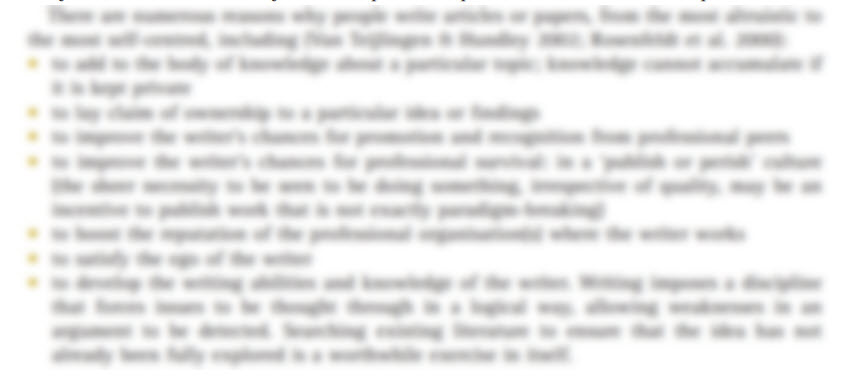
Now includes feedback on your writing Learn more...
SUBSCRIBE to the Writing Clear Science Newsletter
to keep informed about our latest blogs, webinars and writing courses.
F URTHER READING
- Should we use active or passive voice?
- 10 writing tips for the struggling ESL science writer
- Co-authors should define their roles and responsibilities before they start writing
- How to write when you don’t feel like it
- When to cite and when not to
- Back to basics: science knowledge is gained while information is produced
- How to build and maintain confidence as a writer
- If science was perfect, it wouldn’t be science
- The essentials of science writing: What is science writing?
- 8 steps to writing your first draft
- Two ways to be an inefficient writer
- Work-procrastination: important stuff that keeps us from writing

The Savvy Scientist
Experiences of a London PhD student and beyond
Thesis Title: Examples and Suggestions from a PhD Grad

When you’re faced with writing up a thesis, choosing a title can often fall to the bottom of the priority list. After all, it’s only a few words. How hard can it be?!
In the grand scheme of things I agree that picking your thesis title shouldn’t warrant that much thought, however my own choice is one of the few regrets I have from my PhD . I therefore think there is value in spending some time considering the options available.
In this post I’ll guide you through how to write your own thesis title and share real-world examples. Although my focus is on the PhD thesis, I’ve also included plenty of thesis title examples for bachelor’s and master’s research projects too.
Hopefully by the end of the post you’ll feel ready to start crafting your own!
Why your thesis title is at least somewhat important
It sounds obvious but your thesis title is the first, and often only, interaction people will have with your thesis. For instance, hiring managers for jobs that you may wish to apply for in the future. Therefore you want to give a good sense of what your research involved from the title.
Many people will list the title of their thesis on their CV, at least for a while after graduating. All of the example titles I’ve shared below came from my repository of academic CVs . I’d say roughly 30% of all the academics on that page list their thesis title, which includes academics all the way up to full professor.
Your thesis title could therefore feature on your CV for your whole career, so it is probably worth a bit of thought!
My suggestions for choosing a good thesis title
- Make it descriptive of the research so it’s immediately obvious what it is about! Most universities will publish student theses online ( here’s mine! ) and they’re indexed so can be found via Google Scholar etc. Therefore give your thesis a descriptive title so that interested researchers can find it in the future.
- Don’t get lost in the detail . You want a descriptive title but avoid overly lengthy descriptions of experiments. Unless a certain analytical technique etc was central to your research, I’d suggest by default* to avoid having it in your title. Including certain techniques will make your title, and therefore research, look overly dated, which isn’t ideal for potential job applications after you graduate.
- The title should tie together the chapters of your thesis. A well-phrased title can do a good job of summarising the overall story of your thesis. Think about each of your research chapters and ensure that the title makes sense for each of them.
- Be strategic . Certain parts of your work you want to emphasise? Consider making them more prominent in your title. For instance, if you know you want to pivot to a slightly different research area or career path after your PhD, there may be alternative phrasings which describe your work just as well but could be better understood by those in the field you’re moving into. I utilised this a bit in my own title which we’ll come onto shortly.
- Do your own thing. Having just laid out some suggestions, do make sure you’re personally happy with the title. You get a lot of freedom to choose your title, so use it however you fancy. For example, I’ve known people to use puns in their title, so if that’s what you’re into don’t feel overly constrained.
*This doesn’t always hold true and certainly don’t take my advice if 1) listing something in your title could be a strategic move 2) you love the technique so much that you’re desperate to include it!
Thesis title examples
To help give you some ideas, here are some example thesis titles from Bachelors, Masters and PhD graduates. These all came from the academic CVs listed in my repository here .
Bachelor’s thesis title examples
Hysteresis and Avalanches Paul Jager , 2014 – Medical Imaging – DKFZ Head of ML Research Group – direct link to Paul’s machine learning academic CV
The bioenergetics of a marine ciliate, Mesodinium rubrum Holly Moeller , 2008 – Ecology & Marine Biology – UC Santa Barbara Assistant Professor – direct link to Holly’s marine biology academic CV
Functional syntactic analysis of prepositional and causal constructions for a grammatical parser of Russian Ekaterina Kochmar , 2008 – Computer Science – University of Bath Lecturer Assistant Prof – direct link to Ekaterina’s computer science academic CV
Master’s thesis title examples
Creation of an autonomous impulse response measurement system for rooms and transducers with different methods Guy-Bart Stan , 2000 – Bioengineering – Imperial Professor – direct link to Guy-Bart’s bioengineering academic CV
Segmentation of Nerve Bundles and Ganglia in Spine MRI using Particle Filters Adrian Vasile Dalca , 2012 – Machine Learning for healthcare – Harvard Assistant Professor & MIT Research Scientist – direct link to Adrian’s machine learning academic CV
The detection of oil under ice by remote mode conversion of ultrasound Eric Yeatman , 1986 – Electronics – Imperial Professor and Head of Department – direct link to Eric’s electronics academic CV
Ensemble-Based Learning for Morphological Analysis of German Ekaterina Kochmar , 2010 – Computer Science – University of Bath Lecturer Assistant Prof – direct link to Ekaterina’s computer science academic CV
VARiD: A Variation Detection Framework for Color-Space and Letter-Space Platforms Adrian Vasile Dalca , 2010 – Machine Learning for healthcare – Harvard Assistant Professor & MIT Research Scientist – direct link to Adrian’s machine learning academic CV
Identification of a Writer’s Native Language by Error Analysis Ekaterina Kochmar , 2011 – Computer Science – University of Bath Lecturer Assistant Prof – direct link to Ekaterina’s computer science academic CV
On the economic optimality of marine reserves when fishing damages habitat Holly Moeller , 2010 – Ecology & Marine Biology – UC Santa Barbara Assistant Professor – direct link to Holly’s marine biology academic CV
Sensitivity Studies for the Time-Dependent CP Violation Measurement in B 0 → K S K S K S at the Belle II-Experiment Paul Jager , 2016 – Medical Imaging – DKFZ Head of ML Research Group – direct link to Paul’s machine learning academic CV
PhD thesis title examples
Spatio-temporal analysis of three-dimensional real-time ultrasound for quantification of ventricular function Esla Angelini – Medicine – Imperial Senior Data Scientist – direct link to Elsa’s medicine academic CV
The role and maintenance of diversity in a multi-partner mutualism: Trees and Ectomycorrhizal Fungi Holly Moeller , 2015 – Ecology & Marine Biology – UC Santa Barbara Assistant Professor – direct link to Holly’s marine biology academic CV
Bayesian Gaussian processes for sequential prediction, optimisation and quadrature Michael Osborne , 2010 – Machine Learning – Oxford Full Professor – direct link to Michael’s machine learning academic CV
Global analysis and synthesis of oscillations: a dissipativity approach Guy-Bart Stan , 2005 – Bioengineering – Imperial Professor – direct link to Guy-Bart’s bioengineering academic CV
Coarse-grained modelling of DNA and DNA self-assembly Thomas Ouldridge , 2011– Bioengineering – Imperial College London Senior Lecturer / Associate Prof – direct link to Thomas’ bioengineering academic CV
4D tomographic image reconstruction and parametric maps estimation: a model-based strategy for algorithm design using Bayesian inference in Probabilistic Graphical Models (PGM) Michele Scipioni , 2018– Biomedical Engineer – Harvard Postdoctoral Research Fellow – direct link to Michele’s biomedical engineer academic CV
Error Detection in Content Word Combinations Ekaterina Kochmar , 2016 – Computer Science – University of Bath Lecturer Assistant Prof – direct link to Ekaterina’s computer science academic CV
Genetic, Clinical and Population Priors for Brain Images Adrian Vasile Dalca , 2016 – Machine Learning for healthcare – Harvard Assistant Professor & MIT Research Scientist – direct link to Adrian’s machine learning academic CV
Challenges and Opportunities of End-to-End Learning in Medical Image Classification Paul Jager , 2020 – Medical Imaging – DKFZ Head of ML Research Group – direct link to Paul’s machine learning academic CV
K 2 NiF 4 materials as cathodes for intermediate temperature solid oxide fuel cells Ainara Aguadero , 2006 – Materials Science – Imperial Reader – direct link to Ainara’s materials science academic CV
Applications of surface plasmons – microscopy and spatial light modulation Eric Yeatman , 1989 – Electronics – Imperial Professor and Head of Department – direct link to Eric’s electronics academic CV
Geometric Algorithms for Objects in Motion Sorelle Friedler , 2010 – Computer science – Haverford College Associate Professor – direct link to Sorelle’s computer science academic CV .
Geometrical models, constraints design, information extraction for pathological and healthy medical image Esla Angelini – Medicine – Imperial Senior Data Scientist – direct link to Elsa’s medicine academic CV
Why I regret my own choice of PhD thesis title
I should say from the outset that I assembled my thesis in quite a short space of time compared to most people. So I didn’t really spend particularly long on any one section, including the title.
However, my main supervisor even spelled out for me that once the title was submitted to the university it would be permanent. In other words: think wisely about your title.
What I started with
Initially I drafted the title as something like: Three dimensional correlative imaging for cartilage regeneration . Which I thought was nice, catchy and descriptive.
I decided to go for “correlative imaging” because, not only did it describe the experiments well, but it also sounded kind of technical and fitting of a potential pivot into AI. I’m pleased with that bit of the title.
What I ended up with
Before submitting the title to the university (required ahead of the viva), I asked my supervisors for their thoughts.
One of my well intentioned supervisors suggested that, given that my project didn’t involve verifying regenerative quality, I probably shouldn’t state cartilage regeneration . Instead, they suggested, I should state what I was experimenting on (the materials) rather than the overall goal of the research (aid cartilage regeneration efforts).
With this advice I dialled back my choice of wording and the thesis title I went with was:
Three dimensional correlative imaging for measurement of strain in cartilage and cartilage replacement materials
Reading it back now I’m reminder about how less I like it than my initial idea!
I put up basically no resistance to the supervisor’s choice, even though the title sounds so much more boring in my opinion. I just didn’t think much of it at the time. Furthermore, most of my PhD was actually in a technique which is four dimensional (looking at a series of 3D scans over time, hence 4D) which would have sounded way more sciency and fitting of a PhD.
What I wish I’d gone with
If I had the choice again, I’d have gone with:
Four-dimensional correlative imaging for cartilage regeneration
Which, would you believe it, is exactly what it states on my CV…
Does the thesis title really matter?
In all honesty, your choice of thesis title isn’t that important. If you come to regret it, as I do, it’s not the end of the world. There are much more important things in life to worry about.
If you decide at a later stage that you don’t like it you can always describe it in a way that you prefer. For instance, in my CV I describe my PhD as I’d have liked the title to be. I make no claim that it’s actually the title so consider it a bit of creative license.
Given that as your career progresses you may not even refer back to your thesis much, it’s really not worth stressing over. However, if you’re yet to finalise your thesis title I do still think it is worth a bit of thought and hopefully this article has provided some insights into how to choose a good thesis title.
My advice for developing a thesis title
- Draft the title early. Drafting it early can help give clarity for the overall message of your research. For instance, while you’re assembling the rest of your thesis you can check that the title encompasses the research chapters you’re included, and likewise that the research experiments you’re including fall within what the title describes. Drafting it early also gives more time you to think it over. As with everything: having a first draft is really important to iterate on.
- Look at some example titles . Such as those featured above!
- If you’re not sure about your title, ask a few other people what they think . But remember that you have the final say!
I hope this post has been useful for those of you are finalising your thesis and need to decide on a thesis title. If you’ve enjoyed this article and would like to hear about future content (and gain access to my free resource library!) you can subscribe for free here:
Share this:
- Click to share on Facebook (Opens in new window)
- Click to share on LinkedIn (Opens in new window)
- Click to share on Twitter (Opens in new window)
- Click to share on Reddit (Opens in new window)
Related Posts

Minor Corrections: How To Make Them and Succeed With Your PhD Thesis
2nd June 2024 2nd June 2024
Leave a Reply Cancel reply
Your email address will not be published. Required fields are marked *
Notify me of follow-up comments by email.
This site uses Akismet to reduce spam. Learn how your comment data is processed .
Privacy Overview
- USC Libraries
- Research Guides
Organizing Your Social Sciences Research Paper
- Choosing a Title
- Purpose of Guide
- Design Flaws to Avoid
- Independent and Dependent Variables
- Glossary of Research Terms
- Reading Research Effectively
- Narrowing a Topic Idea
- Broadening a Topic Idea
- Extending the Timeliness of a Topic Idea
- Academic Writing Style
- Applying Critical Thinking
- Making an Outline
- Paragraph Development
- Research Process Video Series
- Executive Summary
- The C.A.R.S. Model
- Background Information
- The Research Problem/Question
- Theoretical Framework
- Citation Tracking
- Content Alert Services
- Evaluating Sources
- Primary Sources
- Secondary Sources
- Tiertiary Sources
- Scholarly vs. Popular Resources
- Qualitative Methods
- Quantitative Methods
- Insiderness
- Using Non-Textual Elements
- Limitations of the Study
- Common Grammar Mistakes
- Writing Concisely
- Avoiding Plagiarism
- Footnotes or Endnotes?
- Further Readings
- Generative AI and Writing
- USC Libraries Tutorials and Other Guides
- Bibliography
The title summarizes the main idea or ideas of your study. A good title contains the fewest possible words needed to adequately describe the content and purpose of your research paper. It serves as the initial gateway to the content of a publication.
Bowman, Deborah, and Stephanie Kinnan. "Creating Effective Titles for Your Scientific Publications." VideoGIE 3 (September 2018): 260-261; Bavdekar, Sandeep B. "Formulating the Right Title for a Research Article." Journal of the Association of Physicians of India 64 (February 2016): 53-56.
Importance of Choosing a Good Title
When searching for research on a topic, the title is almost always read first because it is the key identifier of what is being studied . Given this, it is the most important element that defines the research study. With this in mind, avoid the following when creating a title:
- A title should not be too long . If it is lengthy, this usually means there are too many unnecessary words. Avoid language, such as, "A Study to Investigate the...," or "An Examination of the...." These phrases are obvious and generally superfluous unless they are necessary to covey the scope, intent, or type of study.
- On the other hand, a title which is too short often uses words which are too broad or general and, thus, does not tell the reader what is being studied . For example, a paper with the title, "African Politics" is so non-specific the title could be the title of a book and so ambiguous that it could refer to anything associated with politics in Africa. A good title should provide information about the focus and/or scope of your research study.
- In academic writing, catchy phrases or non-specific language may be used, but only if it's within the context of the study [e.g., "Fair and Impartial Jury--Catch as Catch Can"]. However, in most cases, you should avoid including words or phrases that do not help the reader understand the purpose of your paper. An exception to a catchy phrase could be a short quotation derived from a source used in your study that grabs the reader's attention. However, the quote must be clearly relevant to the topic of the paper.
- Academic writing is a serious and deliberate endeavor . Avoid using humorous or clever journalistic styles of phrasing when creating the title to your paper. Journalistic headlines often use emotional adjectives [e.g., incredible, amazing, effortless] to highlight a problem experienced by the reader or use "trigger words" or interrogative words like how, what, when, or why to persuade people to read the article or click on a link. These approaches are viewed as counter-productive in academic writing. A reader does not need clever or humorous titles to catch their attention because the act of reading research is assumed to be deliberate based on a desire to learn and improve understanding of the problem. In addition, a humorous title can detract from the seriousness and authority of your research.
- Titles do not have to adhere to rigid grammatical or stylistic standards . Unlike everywhere else in a college-level social sciences research paper [except when using direct quotes], the purpose of the title is to capture the reader's attention. For example, it could be appropriate to begin a title with a coordinating conjunction [i.e., and, but, or, nor, for, so, yet] if it makes sense to do so and does not detract from the purpose of the study [e.g., "Yet Another Look at Mutual Fund Tournaments"], beginning the title with an inflected form of a verb such as those ending in -ing [e.g., "Assessing the Political Landscape: Structure, Cognition, and Power in Organizations"], or using a catchy quote to get the read's attention ["Mobley Jr, Steve D., Ramon W. Johnson, Christopher JP Sewell, Jennifer M. Johnson, and Amon J. Neely. "'We Are Not Victims': Unmasking Black Queer and Trans Student Activism at HBCUs"].
Appiah, Kingsley Richard et al. “Structural Organisation of Research Article Titles: A Comparative Study of Titles of Business, Gynaecology and Law.” Advances in Language and Literary Studies 10 (2019); Bavdekar, Sandeep B. "Formulating the Right Title for a Research Article." Journal of the Association of Physicians of India 64 (February 2016): 53-56. Hartley James. “To Attract or to Inform: What are Titles for?” Journal of Technical Writing and Communication 35 (2005): 203-213; Huggett, Sarah. "Heading for Success: Or How Not to Title your Paper." Research Trends 1 (September 2011): 4; Jaakkola, Maarit. “Journalistic Writing and Style.” In Oxford Research Encyclopedia of Communication . Jon F. Nussbaum, editor. (New York: Oxford University Press, 2018): https://oxfordre.com/communication.
Structure and Writing Style
The following parameters can be used to help you formulate a suitable research paper title:
- The purpose of the research
- The scope of the research
- The narrative tone of the paper [typically defined by the type of research]
- The methods used to study the problem
The aim of a title is to capture the reader’s attention by highlighting the research problem under investigation.
Create a Working Title Typically, the final title you submit to your professor is created after the research is complete so that the title accurately captures what has been done . The working title should be developed early in the research process because it can help anchor the focus of your study in much the same way the research problem does. Referring back to the working title can help you reorient yourself back to the main purpose of the study if you find yourself drifting off on a tangent while researching and writing your paper. The Final Title Effective titles in research papers have a number of characteristics that reflect general principles of academic writing.
- Indicate accurately the subject and scope of the study,
- Rarely use abbreviations or acronyms unless they are commonly known,
- Use words that create a positive impression and stimulate reader interest,
- Use current nomenclature from the field of study,
- Identify key variables, both dependent and independent,
- Reveal how the paper will be organized,
- Suggest a relationship between variables which supports the major hypothesis,
- Is limited to 5 to 12 substantive words,
- Does not include redundant phrasing, such as, "A Study of," "An Analysis of" or similar constructions,
- Takes the form of a question or declarative statement,
- If you use a quote as part of the title, the source of the quote is cited [usually using an asterisk and footnote],
- Use correct grammar and capitalization with all first words and last words capitalized, including the first word of a subtitle. All nouns, pronouns, verbs, adjectives, and adverbs that appear between the first and last words of the title are also capitalized, and
- Avoid using an exclamation mark at the end of the title.
The Subtitle Subtitles are frequently used in social and behavioral sciences research papers because it helps the reader understand the scope of the study in relation to how it was designed to address the research problem. Often, the main title describes the problem and the subtitle clarifies the context, highlights the method of analysis, or identifies the research setting. Think about what type of subtitle listed below reflects the overall approach to your study and whether you believe a subtitle is needed to emphasize the investigative parameters of your research.
1. Explains or provides additional context , e.g., "Linguistic Ethnography and the Study of Welfare Institutions as a Flow of Social Practices: The Case of Residential Child Care Institutions as Paradoxical Institutions." [Palomares, Manuel and David Poveda. Text & Talk: An Interdisciplinary Journal of Language, Discourse and Communication Studies 30 (January 2010): 193-212]
2. Adds substance to a literary, provocative, or imaginative title or quote , e.g., "Listen to What I Say, Not How I Vote": Congressional Support for the President in Washington and at Home." [Grose, Christian R. and Keesha M. Middlemass. Social Science Quarterly 91 (March 2010): 143-167]
3. Qualifies the geographic scope of the research , e.g., "The Geopolitics of the Eastern Border of the European Union: The Case of Romania-Moldova-Ukraine." [Marcu, Silvia. Geopolitics 14 (August 2009): 409-432]
4. Qualifies the temporal scope of the research , e.g., "A Comparison of the Progressive Era and the Depression Years: Societal Influences on Predictions of the Future of the Library, 1895-1940." [Grossman, Hal B. Libraries & the Cultural Record 46 (2011): 102-128]
5. Focuses on investigating the ideas, theories, or work of a particular individual , e.g., "A Deliberative Conception of Politics: How Francesco Saverio Merlino Related Anarchy and Democracy." [La Torre, Massimo. Sociologia del Diritto 28 (January 2001): 75 - 98]
6. Identifies the methodology used , e.g. "Student Activism of the 1960s Revisited: A Multivariate Analysis Research Note." [Aron, William S. Social Forces 52 (March 1974): 408-414]
7. Defines the overarching theoretical framework for analyzing the research problem , e.g., "Explaining Territorial Change in Federal Democracies: A Comparative Historical Institutionalist Approach." [ Tillin, Louise. Political Studies 63 (August 2015): 626-641.
With these examples in mind, think about what type of subtitle reflects the overall approach to your study. This will help the reader understand the scope of the study in relation to how it was designed to address the research problem. Keep in mind, however, that although subtitles are commonly used by scholars, they are not required.
Anstey, A. “Writing Style: What's in a Title?” British Journal of Dermatology 170 (May 2014): 1003-1004; Balch, Tucker. How to Compose a Title for Your Research Paper. Augmented Trader blog. School of Interactive Computing, Georgia Tech University; Bavdekar, Sandeep B. “Formulating the Right Title for a Research Article.” Journal of Association of Physicians of India 64 (February 2016); Choosing the Proper Research Paper Titles. AplusReports.com, 2007-2012; Eva, Kevin W. “Titles, Abstracts, and Authors.” In How to Write a Paper . George M. Hall, editor. 5th edition. (Oxford: John Wiley and Sons, 2013), pp. 33-41; Hartley James. “To Attract or to Inform: What are Titles for?” Journal of Technical Writing and Communication 35 (2005): 203-213; Huggett, Sarah. "Heading for Success: Or How Not to Title your Paper." Research Trends 1 (September 2011): 4; General Format. The Writing Lab and The OWL. Purdue University; Kerkut G.A. “Choosing a Title for a Paper.” Comparative Biochemistry and Physiology Part A: Physiology 74 (1983): 1; “Tempting Titles.” In Stylish Academic Writing . Helen Sword, editor. (Cambridge, MA: Harvard University Press, 2012), pp. 63-75; Nundy, Samiran, et al. “How to Choose a Title?” In How to Practice Academic Medicine and Publish from Developing Countries? A Practical Guide . Edited by Samiran Nundy, Atul Kakar, and Zulfiqar A. Bhutta. (Springer Singapore, 2022), pp. 185-192.
- << Previous: Applying Critical Thinking
- Next: Making an Outline >>
- Last Updated: Dec 19, 2024 2:30 PM
- URL: https://libguides.usc.edu/writingguide

Types of Title
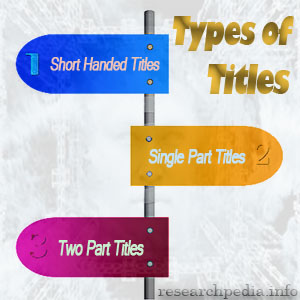
The consequences and implications of a title cannot be underestimated either so as its different types. The proper use of the title not only portrays your view but also gives a good knowledge of the respected literature.
Importance of a Research Title:
A great title increases the chances of you writing a great research paper or thesis become easy and you can concentrate on more important parts of your documents. Title acts as a doorway to the ideas, your audience knows what they are about to read when they come across your title. It directs viewers who are interested in your subject to your research. An efficient title alerts reader to the paper’s topic and can be used to get readers in the right frame of mind. Titles can be classified into three different types.
1. Short-Handed Titles:
- Acronyms and shortened structured titles in general, are to be spelled out.
- These kinds of titles are usually not used for research papers or theses.
- They are usually used for famous terms and models.
- For example, Information Retrieval as IR, Machine Learning as ML, Hidden Markov Model as HMM, Potassium Mangan cyanide as K3 Mn(CN)6, Minnesota Multiphasic Personality Inventory as MMPI and Teaching English as a Second Language as TESL.
2. Single Part Titles:
- As the name indicates it consists of a single phrase
- It usually doesn’t require any colons or any additional details.
- Such types of titles increase visibility, and readability and are easy to learn.
- But at the same time, it is very hard to rank such titles so research may be left out and might not receive its due appreciation.
- Plastic in Marina trench: A threat to human existence.
- Dark matter: A hidden universe.
- Gene Editing: A revolution in the field of medicine.
3. Two Part Titles:
- Two-part titles consist of two phrases usually attached using a colon.
- One part highlights the topic, followed by a colon and a subtitle containing more precise information or brings specificity to the title.
- This title type is an accepted method for titling research papers and academic theses.
- “Geocasting in mobile ad hoc networks: Location-based multicast algorithms”
- Microplastic in marina Ecosystem: Impact, distribution and potentially harmful effects on a human being.
- It provides clarity to your research topic. It is easy to rank in search engines and It provides more precise knowledge about the topic while if we compare it with a single-part title, the details are lacking as compared to this one.
Tips for Writing an Amazing Research Title:
Following are some tips that you can follow and write eye-catching research titles :
- Your title should be concise.
- Focus on clarity.
- The main theme of your research should be indicated in your title.
- Be specific about your title.
Conclusion:
The title is the first thing that readers see when they are searching for new research. Always focus and work on a title because the foundation of your research lies in a good title.
Share this:
- Share on Tumblr

1 Comment Already
which type is good for database research papers title
Leave a Reply Cancel reply
Your email address will not be published. Required fields are marked *
Notify me of follow-up comments by email.
Notify me of new posts by email.
Research Paper Writing Guides
Research Paper Title
Last updated on: Dec 14, 2024
How to Write a Research Paper Title That Stands Out
By: Donna C.
17 min read
Reviewed By:
Published on: Jan 8, 2024

A research paper title determines whether the reader or the audience decides to read your paper or not. It is the first thing a reviewer or a journal editor will see when they’re evaluating your work. Coming up with a good research paper title is more than just stringing together words. It's an art that balances clarity, creativity, and precision. It should be both interesting and engaging at the same time. If you’re unsure how to give your research paper a suitable title, don’t worry. We will help you out! This blog contains all the essential details required to craft a balanced and suitable research paper title. With writing steps, tips, and examples, you’ll understand what is the best title for research paper? And how to create one. So, without further ado, let’s get started!
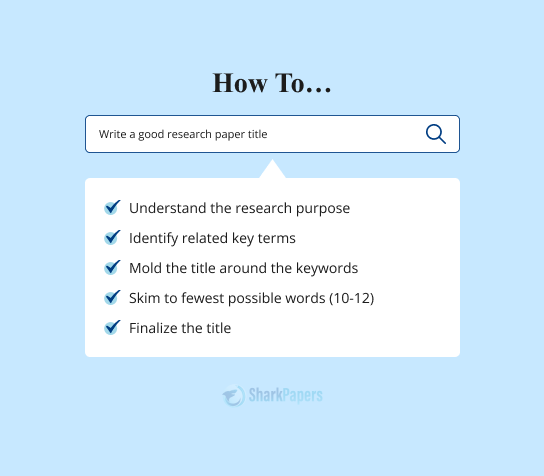
On this Page
What Is a Research Paper Title and Why Does It Matter?
A research paper title is the concise, descriptive name given to your research work. It acts as the first point of contact for readers, offering a snapshot of the study's focus and objectives. A well-crafted title summarizes the core idea of your paper and sets the tone for what follows.
Without a proper title that accurately captures the essence and purpose of your research, the paper is almost useless. The importance and significance of a title that strikes the perfect balance between clarity and creativity cannot be overstated. Here is why a good research paper title is important:
- First Impression : A good title always leaves a positive first impression, influencing the readers to give your paper a thorough read.
- Provides Clarity: It provides a clear idea of your research topic without needing to read the entire paper.
- Relevance: It communicates the importance of your research and its contribution to the field.
- Searchability: Well-chosen keywords make your research easier to find in databases and online searches.
- Innovation: Creativity in the title hints at the innovative nature of your research.
- Professional Impact: A strong title positively influences how your work is perceived by editors and peers.
- Tone Setting: It gives readers a preview of your writing style and the overall approach of your study.
- Academic Identity: A memorable title contributes to your research's identity, making it more likely to be remembered and cited.
7 Characteristics of a Good Research Paper Title
Here are the 7 common characteristics of a good research paper’s title.
- Provides clarity
- Is relevant
- Includes keywords
- Provides specific details
- Targets the audience
- Doesn’t mislead
Now, let’s understand how to write a research paper title in 5 steps.
How To Write A Research Paper Title In 5 Steps
We have broken down the process of crafting strong research paper titles into 5 simple steps.
Here are the research paper title writing steps:
Step 1. Understand the Purpose of Your Research Paper
Making a title that catches attention and tells a story is important, and to do that, you need to know why you're making it. Consider the following questions to understand the purpose of your title:
- What is the central theme of my research?
- Why is my research significant?
- Who is the intended audience for my research?
- What sets my research apart or makes it innovative?
- How can I summarize my research concisely?
Settle down, take your time, and try to answer all these questions. Soon, you’ll be able to have a clear starting path to craft a perfect title for your research paper.
Let’s take an example, and we’ll adjust the questions accordingly.
The title is too long. To start the process of making it concise, answer these questions.
After you’ve found the answers to these questions, you can narrow down your title in the next step after finding the relevant keywords. Let's look at how to accomplish that.
Step 2. Identify Key Terms Related to Your Research
In this step, pinpoint the essential terms that encapsulate the core and scope of your study. Think of these terms as the building blocks of your title, representing the key concepts and focus of your research. Choose terms that straightforwardly capture what makes your work unique.
For example , in the above sample title that relates to mental well-being for urban citizens, some key terms are:
- Urban residents
- Comprehensive survey
- Daily physical activity
- Mental well-being
- Positive correlation
- Improved mental health
You can turn to modern techniques like using search engines and Google Scholar to find relevant keywords. Such key terms have the potential to boost the online visibility of your paper.
Step 3. Mold Your Title According to the Relevant Keywords
Here is a skimmed-down title that we’ve achieved by shifting some words around, and using the proper syntax:
The title is getting closer to the final stage, but it is still too long. Read the next steps to create a working title for your research document.
Step 4. Skim to The Fewest Words Possible
Short and sweet is the golden rule for a suitable and good research paper title. Here is how you should keep your title concise:
- Remember that the title is a concise and attention-grabbing piece of text that immediately grabs the reader’s interest
- Trim away any unnecessary details that don't contribute to the core message
- Your title should summarize the intent of your research study effectively
- Avoid using complete sentences in the title
- Use phrases to keep it concise and to the point
For example, the title we craft in the last step is still quite long. Using the guidelines given above, we can skim it down to:
Typically, a title under 12 words is ideal. Keeping your title concise and using the fewest possible words has the highest chance of capturing the reader's attention. Avoid using any unnecessary words that add length to the title.
Now, to polish this title to perfection, move on to the next step.
Step 5. Finalize Your Title
Once you've trimmed down and adjusted your title, get feedback from others. Is it clear? Does it make them curious? Polish until your title shines like a beacon, inviting people to explore your research.
After feedback, your final title could be:
This final version aims to be clear, concise, and captivating. It sparks interest and urges readers to dive into the details of urban well-being and the impact of daily activity on mental health.
Research Title Examples For Students
Getting help from practical examples of good research paper titles will help you understand better.
We’ve collected some research title examples here. The following table evaluates the 5 example of research titles based on certain factors. A good title should satisfy the complete criteria in the table below:
What is a Research Paper Subtitle?
A research paper subtitle is an additional, explanatory phrase or brief statement that follows the main title of the research paper. Although not a necessity, It provides more context, clarification, or additional information about the study.
Typically, subtitles are common in social sciences research papers. Here are some examples of research paper subtitles.
Main title : “Exploring Dark Matter in the Universe”
Subtitle: “Quantum Mechanics and Observational Evidence in the Search for Elusive Cosmic Components”
Main Title: “Neurobiological Mechanisms of Memory Formation”
Subtitle: “Examining the Role of Synaptic Plasticity and Neurotransmitter Release in Learning Processes”
Main Title: “Impact of Virtual Reality on Learning Outcomes”
Subtitle: “An Experimental Study Assessing the Effectiveness of Immersive Educational Environments in STEM Education”
Main Title: “Inclusive Design for Human-Computer Interaction”
Subtitle: “User-Centered Approaches and Accessibility Considerations in Crafting Technological Solutions for Diverse Populations”
Main Title: “Youth Civic Engagement in the Digital Age”
Subtitle: “A Comparative Study of Online Activism and Traditional Participation Among Urban and Rural Adolescents”
Research Titles in Different Styles
When writing a research paper, the title format may vary depending on the citation style you are using. Here's how to craft a research article title in three popular styles:
How to Write a Research Article Title in APA
- Be Clear and Specific: The title should clearly reflect the main focus of your research.
- Capitalization: Capitalize only the first word, the last word, and any major words in the title (e.g., "The Effects of Sleep on Cognitive Performance").
- Conciseness: Keep the title brief, ideally under 12 words.
- Avoid Abbreviations and Punctuation: Do not use abbreviations or unnecessary punctuation marks.
Research Paper Title in MLA Style
- Be Descriptive and Focused: The title should provide a clear idea of the topic without being overly complex.
- Capitalization: Capitalize the first and last words, as well as all principal words in the title (e.g., The Role of Gender in Early Childhood Development ).
- Avoid Periods or Colons at the End: MLA typically doesn’t use punctuation at the end of the title unless it’s part of the title itself.
Research Paper Title in Chicago Style
- Be Clear and Concise: The title should encapsulate the research's subject and focus.
- Capitalization: Capitalize the first and last words of the title and subtitle, as well as all major words in between.
- Use a Subtitle: Chicago style often uses a subtitle to give more detail about the paper's focus.
Additional Tips on How to Write a Good Research Paper Title
Although we have covered every writing step in crafting a research paper title, keeping in mind some tips is a good idea as well. Follow these tips to make sure your title is as perfect as it can be:
- Always mold your title toward the target audience
- Choose the language that aligns with the style and tone of your paper
- Don’t end your title with a period (.), as it is not a sentence
- Do not use overly complex words in the title
- Make sure your title accurately represents the intent of your paper
- Use active verbs to convey action or intent
- You can also include a reference to the research paper thesis in your title
- Provide specific details about your focus, methodology, or findings
To wrap things up, writing a title for a research paper is considered one of the most challenging tasks in research writing. Choosing a title that accurately portrays your research work, its focus, and its aim isn’t an easy task.
With our detailed guide on how to craft a captivating research paper title, you can give your research paper an edge. From the initial draft to the final polishing of the title, you can write a great title with a little effort.
However, if you still find it rather challenging to give your paper a suitable title, don’t worry, we have a solution for that as well. This is where our expert writers come to play.
You can reach out to our paper writer service and tell us exactly what you require. Our professionals have what it takes to craft winning papers.
Get custom research papers from us at the most affordable rates today!
Frequently Asked Questions
How do i write a good scientific research paper title, abstract, and keywords.
Title : Clearly convey the main focus, be concise, use relevant keywords for searchability. Abstract : Summarize research objectives, methods, results, and conclusions concisely; emphasize significance; avoid jargon. Keywords : Identify core concepts, consider likely search terms, use accepted terminology, be specific to enhance discoverability.
How to write a research paper title page?
Follow these steps:
- Center the title at the top.
- Include author names and affiliations below
- Add a running head if needed.
- Place the page number in the top right
- Use a readable font and follow citation style guidelines
How to write a science report title?
Crafting a science report title involves clearly stating the subject, being concise with key terms, considering audience and style, and adhering to formatting guidelines.
How to make a research paper title page in MLA style?
- Place the title at the center, avoiding bold or underlining
- Below the title, include your name, instructor's name, course, and date, aligned to the left
- Use a readable font (e.g., Times New Roman) in 12-point size
- Double-space all text
- Do not use a separate title page unless instructed otherwise; include this information on the first page of your paper
How to write a title for a lab report?
Crafting a lab report title requires clarity and conciseness. Clearly state the experiment's focus, use key terms, and include relevant variables. Follow any provided formatting guidelines for precision.
What is the best title for a research paper?
There is no universal “best” title for a research paper, as it depends on the specific content and focus of the study. The title should accurately reflect the research topic, be concise, and spark interest.
How to Write a Term Paper Title?
Here are some key tips for crafting a great term paper title:
- Be Clear and Specific: Reflect the main topic and focus of your paper.
- Keep It Concise: Avoid unnecessary words, and make it brief.
- Include Key Terms: Use relevant keywords to highlight your paper’s subject.
- Use a Subtitle (if needed): Add a subtitle to clarify complex topics.
- Avoid Jargon: Keep it understandable for a wider audience.

Donna writes on a broad range of topics, but she is mostly passionate about social issues, current events, and human-interest stories. She has received high praise for her writing from both colleagues and readers alike. Donna is known in her field for creating content that is not only professional but also captivating.
Was This Blog Helpful?
Keep reading.
- Learn How to Write a Research Paper: Step-by-Step Guide
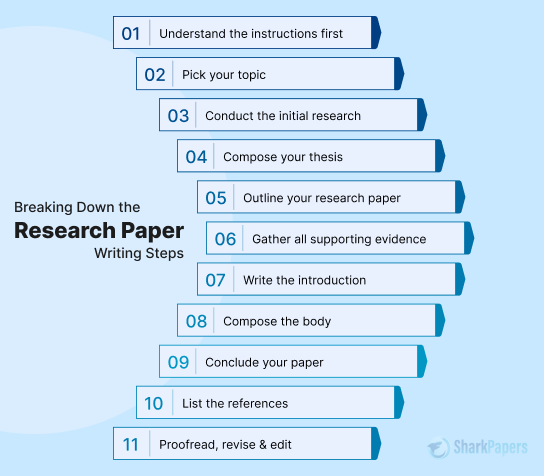
- Everything You Need To Know To Conduct Effective Qualitative Research

- Types of Qualitative Research Methods with Examples

- Best 300+ Ideas For Research Paper Topics in 2024

- How to Write a Proposal for a Research Paper: Steps & Examples

- A Beginner’s Guide on How to Write an Abstract

- 13 Best Tips to Start a Research Paper

- How To Write An Introduction For A Research Paper - A Complete Guide
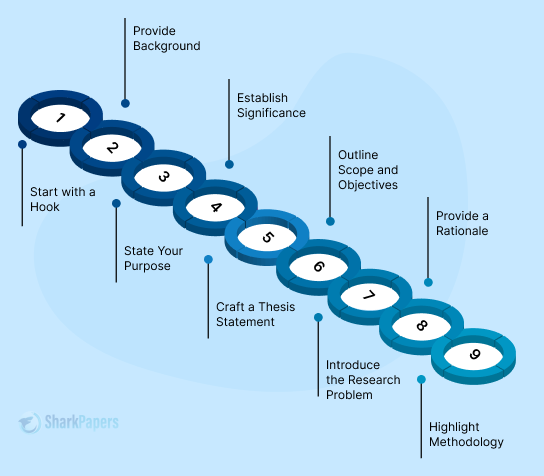
- Learn How To Write An Abstract For A Research Paper with Examples and Tips
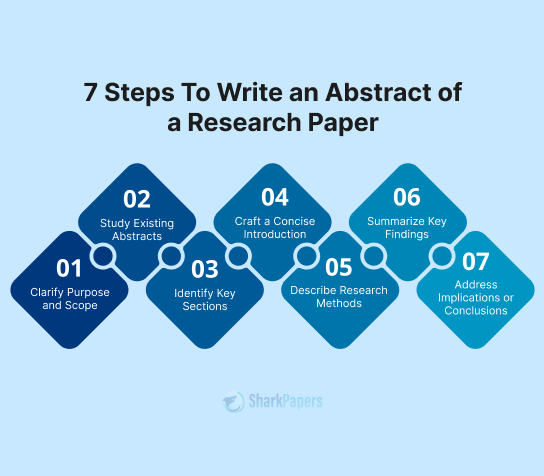
- How to Write a Literature Review for a Research Paper | A Complete Guide
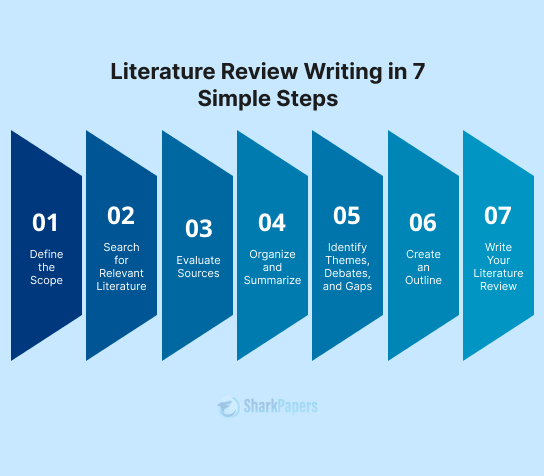
- A Guide to Writing The Methods Section of A Research Paper
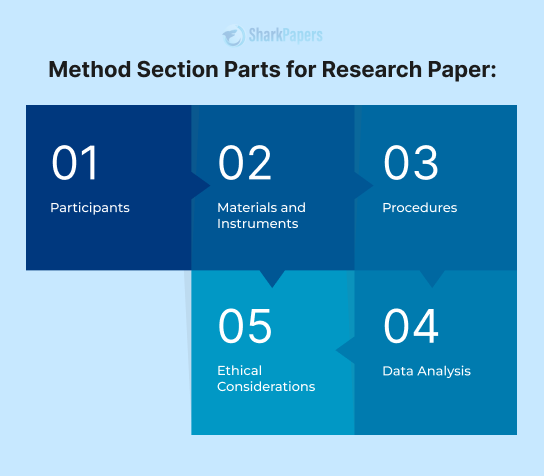
- How to Write a Research Paper Thesis: A Detailed Guide
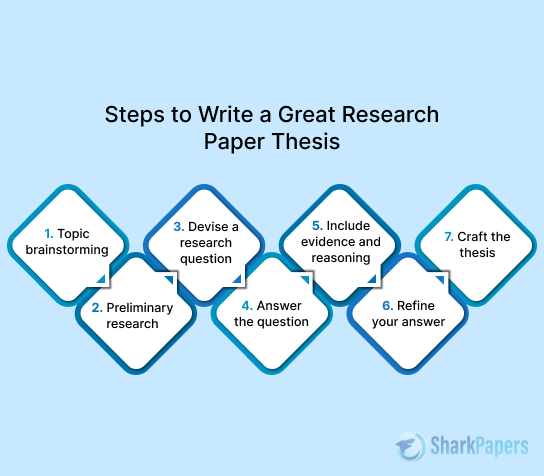
- A Detailed Guide To Writing a Research Paper Conclusion
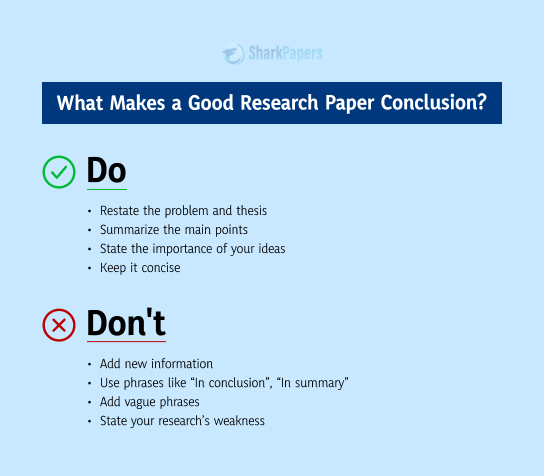
- How To Write The Results Section of A Research Paper | Steps & Tips
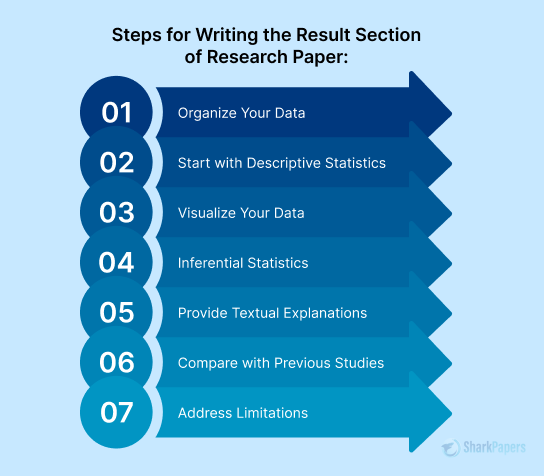
- How to Write a Problem Statement for a Research Paper: An Easy Guide
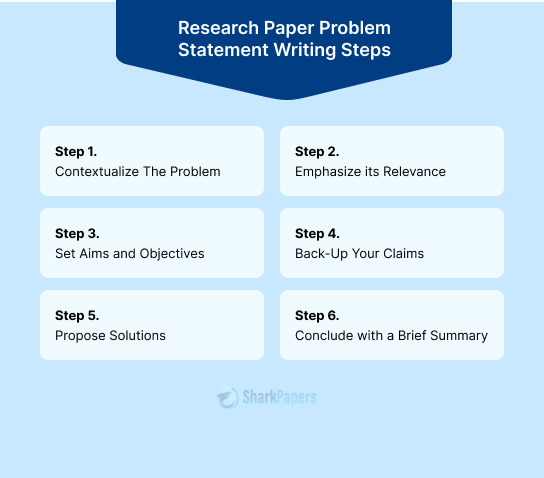
- How to Find Sources for a Research Paper | Books, Articles, Journals & more!
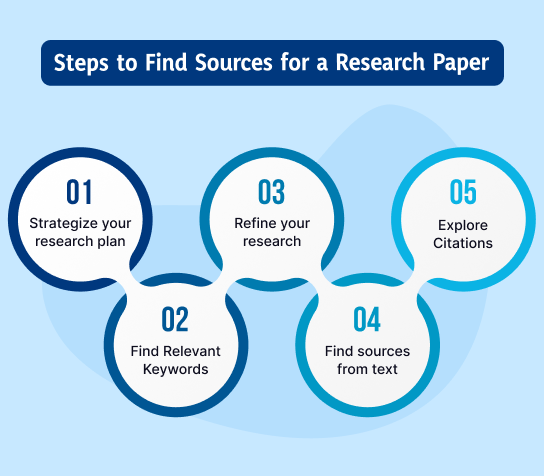
- A Detailed Guide: How to Write a Discussion for a Research Paper
)
- How To Write A Hypothesis In A Research Paper - A Guide with Examples
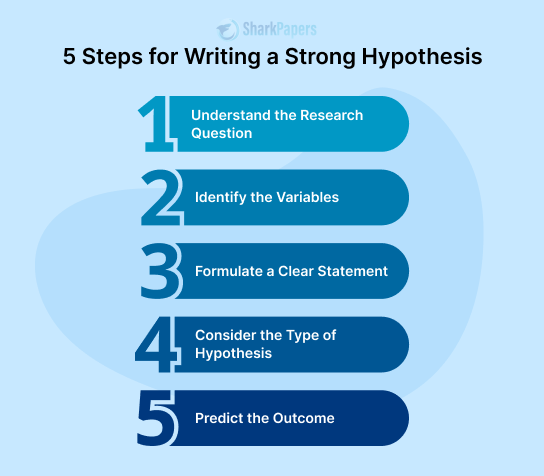
- Learn How To Cite A Research Paper in Basic Formats
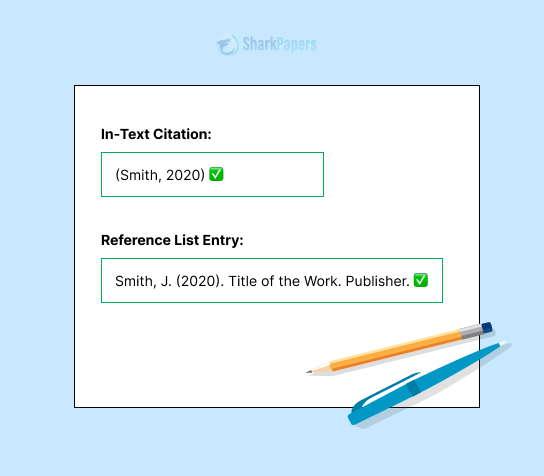
- The Ultimate List of Ethical Research Paper Topics in 2024
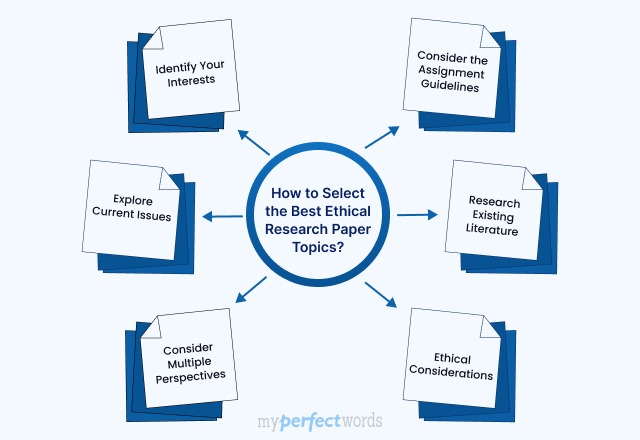
- 150+ Controversial Research Paper Topics to Get You Started
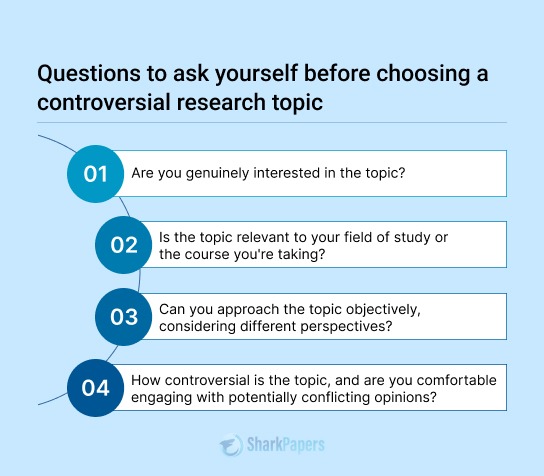
- How to Edit Research Papers With Precision: A Detailed Guide
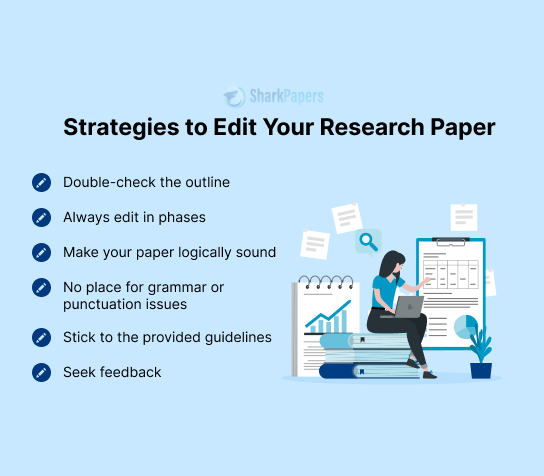
- A Comprehensive List of Argumentative Research Paper Topics
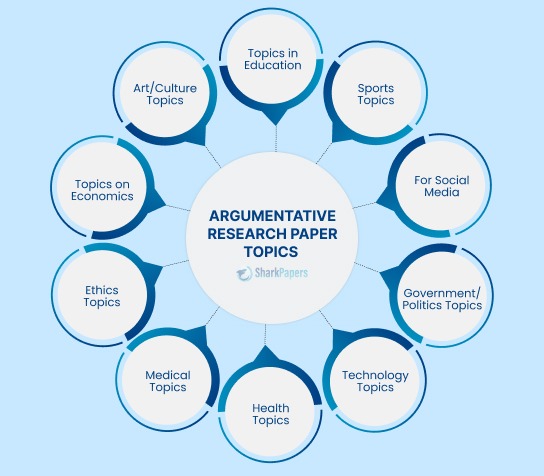
- A Detailed List of Amazing Art Research Paper Topics
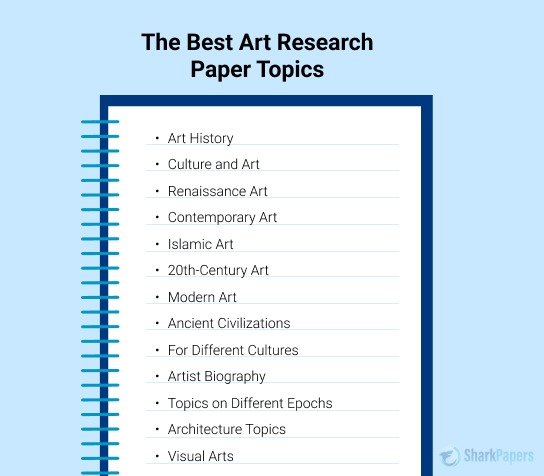
- Diverse Biology Research Paper Topics for Students: A Comprehensive List
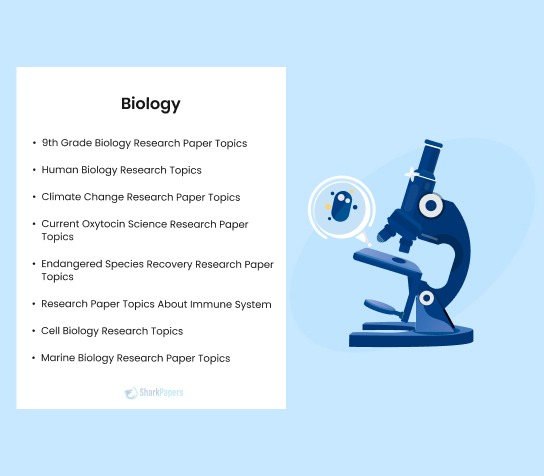
- 230 Interesting and Unique History Research Paper Topics
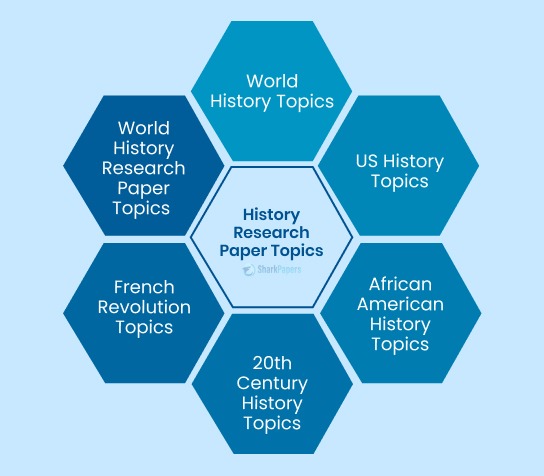
- 190 Best Business Research Paper Topics
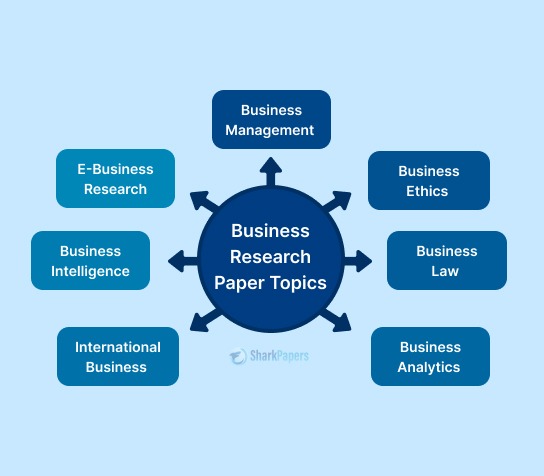
- 200+ Engaging and Novel Literature Research Paper Topics
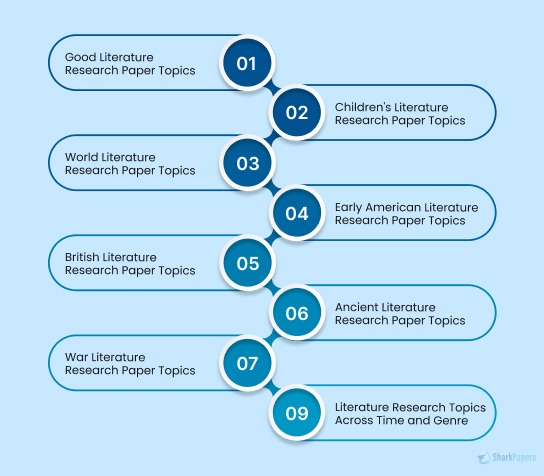
- A Guide on How to Write a Social Science Research Paper
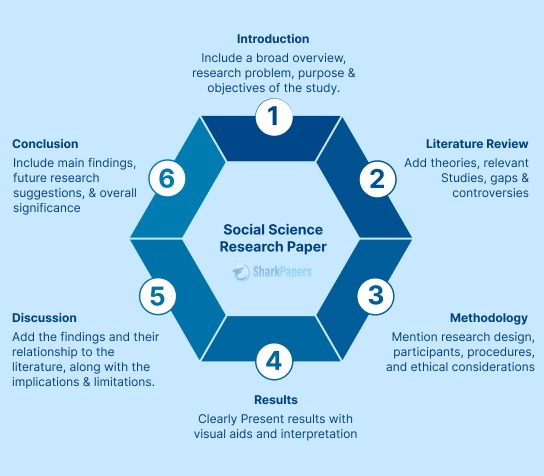
- Sociology Research Papers: Format, Outline, and Topics
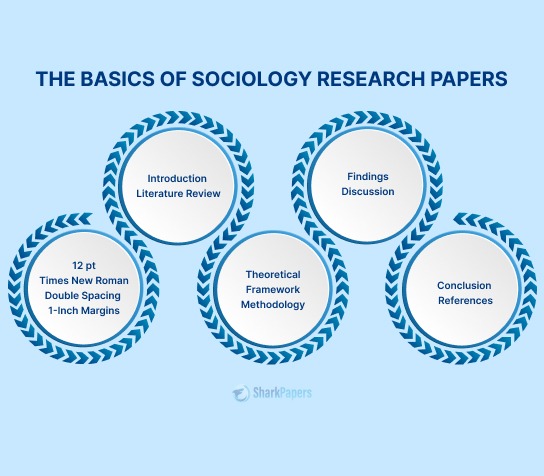
- Understanding the Basics of Biology Research Papers
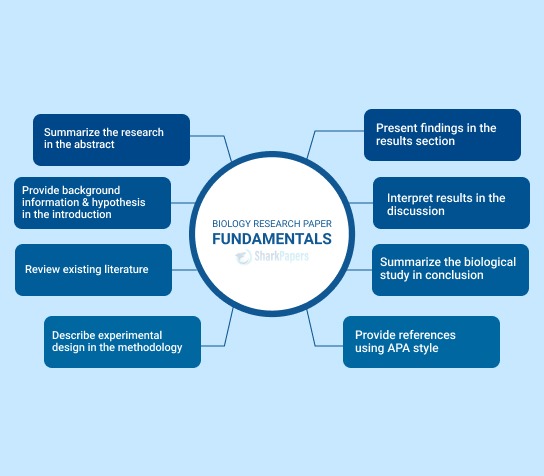
- How to Write a Psychology Research Paper: Guide with Easy Steps
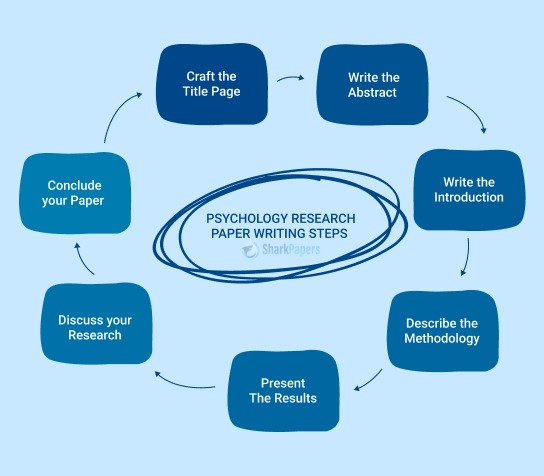
- Exploring the Different Types of Research Papers: A Guide
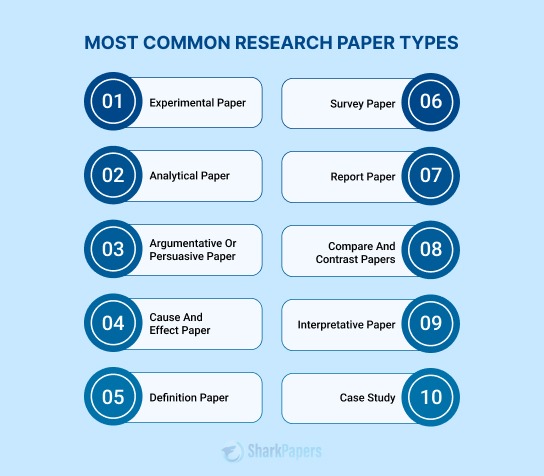
- Scientific Research Paper: Types, Formats, Structure & Writing Process

- Argumentative Research Paper | A Step-by-Step Guide

- Analytical Research Papers: A Detailed Walkthrough

- Experimental Research Paper Explained Comprehensively

- An In-Depth Look at Psychology Research Paper Examples

- 15+ Research Paper Examples for Different Types and Formats

- Free Argumentative Research Paper Examples

- Refine Your Literary Skills with Literature Research Paper Examples

- Get Inspired by 10+ Biology Research Paper Examples

- A Comprehensive Guide to History Research Paper Examples

- An Extensive List of Business Research Paper Examples

- 10+ Best APA Research Paper Examples for Effective Writing

- 10+ Expertly Crafted MLA Research Paper Examples

- Explore 8+ Chicago Research Paper Examples for Academic Excellence

- 15+ Examples of Abstracts for Research Papers

- Exploring IEEE Research Paper Examples: A Practical Guide

- Exploring Research Paper Thesis Examples: A Beginner's Guide

- 10 Free Research Paper Proposal Examples
-12114.jpg)
- A Look at 10 Interesting Art Research Paper Examples

- Survey Research Papers: Types, Format, Writing & Examples

- A Closer Look Into Research Paper Format: APA, MLA, Chicago & IEEE

- APA Research Paper Format 7th Edition: Guide with Examples

- MLA Research Paper Format Made Easy: Step-by-Step Guide

- Formatting Research Paper Title Page in APA, MLA & Chicago

- Crafting the Perfect Research Paper Outline | Steps & Examples

- A Detailed Guide to Chicago Research Paper Format

- An Easy Guide to IEEE Research Paper Format

- 12+ Practical Research Paper Outline Examples for Structuring Your Thoughts

- Engaging Psychology Research Paper Topics for Your Next Project

Struggling With Your Paper?
Get a Custom Paper Written at
with a FREE Turnitin report, AI report, title page, unlimited revisions, and a lot more!
LIMITED TIME ONLY
People Also Read
OFFER EXPIRES SOON!
© 2024 - All rights reserved
Disclaimer: All client orders are fulfilled by our team of experienced, professional writers. The essays and papers we provide are intended to serve as educational tools and reference models only, and should not be submitted as original work.
LOGIN TO YOUR ACCOUNT
SIGN UP TO YOUR ACCOUNT
- Your phone no.
- Confirm Password
- I have read Privacy Policy and agree to the Terms and Conditions .
FORGOT PASSWORD
- SEND PASSWORD

IMAGES
COMMENTS
The different types of titles with examples 1. Noun phrases that describe the topic of study Also known as descriptive or neutral, this is by far the most common type of title, especially in scientific research. Typically, a noun phrase is used to convey what the study is, without revealing its findings.
Mar 26, 2024 · Step 2: Decide on the Title Type. Titles can be structured in various ways, each serving different purposes. Common title types include: Descriptive Title: States the topic and variables without a specific finding. Example: “Social Media Use and Anxiety Among College Students” Declarative Title: States the main result or conclusion of the ...
Jun 26, 2024 · A research title is a critical component of any research study or academic paper. It serves multiple important functions that contribute to the overall success and impact of the research. Here are key reasons why a research title is important: 1. First Impression. The research title is often the first element a reader encounters.
Tip: Each example research title requires that you consult authoritative scientific reports to improve the quality of your paper. Furthermore, specificity and preciseness are required in each example of research title and problem, which only an authority source can provide. Good Research Title Examples on History
Dec 13, 2023 · Examples of Effective Research Titles. Illustrative Examples from Various Disciplines. Here are examples of effective research titles from different disciplines: “Unlocking the Mysteries of Neural Plasticity: A Multidisciplinary Approach” “Sustainable Urban Development: Integrating Environmental and Social Perspectives”
Terms used to describe types of titles. Common terms used to describe different types of research paper titles are Descriptive, declarative, interrogative, suggestive, humorous and combination titles. Descriptive titles or indicative titles. Descriptive titles state the subject, topic, design, purpose or methods of the project. For example:
Feb 23, 2024 · Therefore you want to give a good sense of what your research involved from the title. Many people will list the title of their thesis on their CV, at least for a while after graduating. All of the example titles I’ve shared below came from my repository of academic CVs. I’d say roughly 30% of all the academics on that page list their ...
5 days ago · The following parameters can be used to help you formulate a suitable research paper title: The purpose of the research; The scope of the research; The narrative tone of the paper [typically defined by the type of research] The methods used to study the problem; The aim of a title is to capture the reader’s attention by highlighting the ...
Aug 16, 2024 · Such types of titles increase visibility, and readability and are easy to learn. But at the same time, it is very hard to rank such titles so research may be left out and might not receive its due appreciation. Examples of such titles are: Plastic in Marina trench: A threat to human existence. Dark matter: A hidden universe.
Jan 8, 2024 · Research Title Examples For Students. Getting help from practical examples of good research paper titles will help you understand better. We’ve collected some research title examples here. The following table evaluates the 5 example of research titles based on certain factors. A good title should satisfy the complete criteria in the table below: